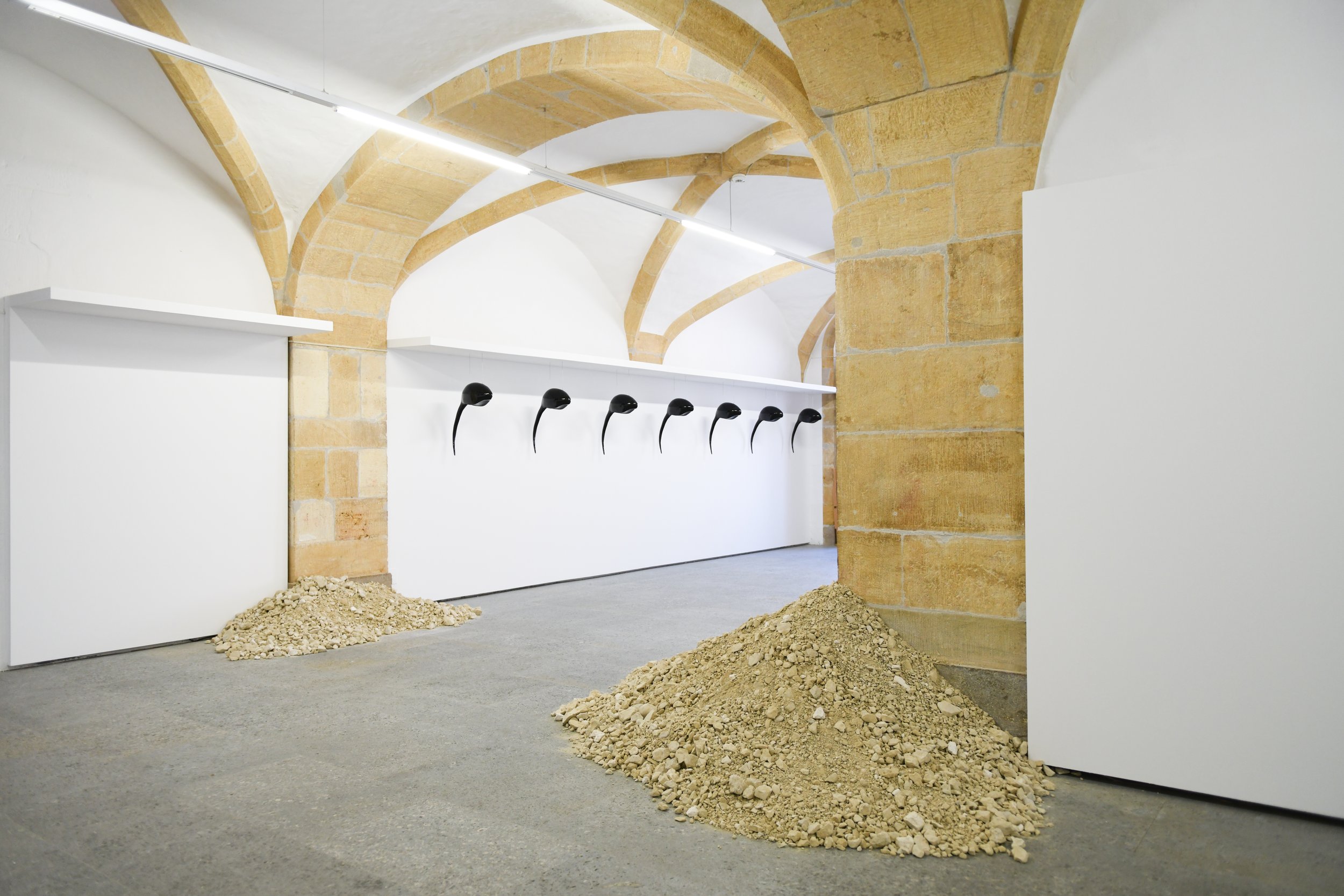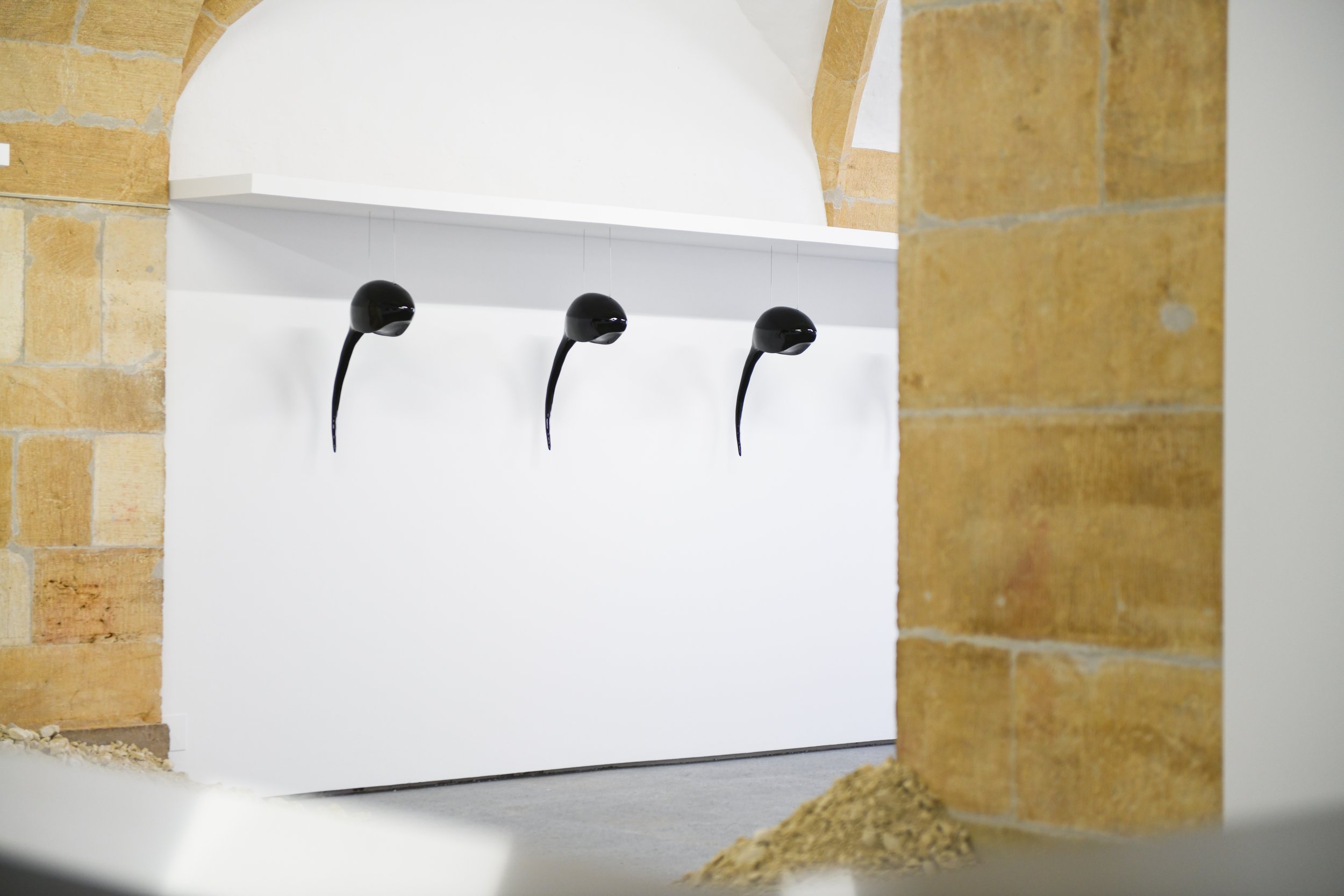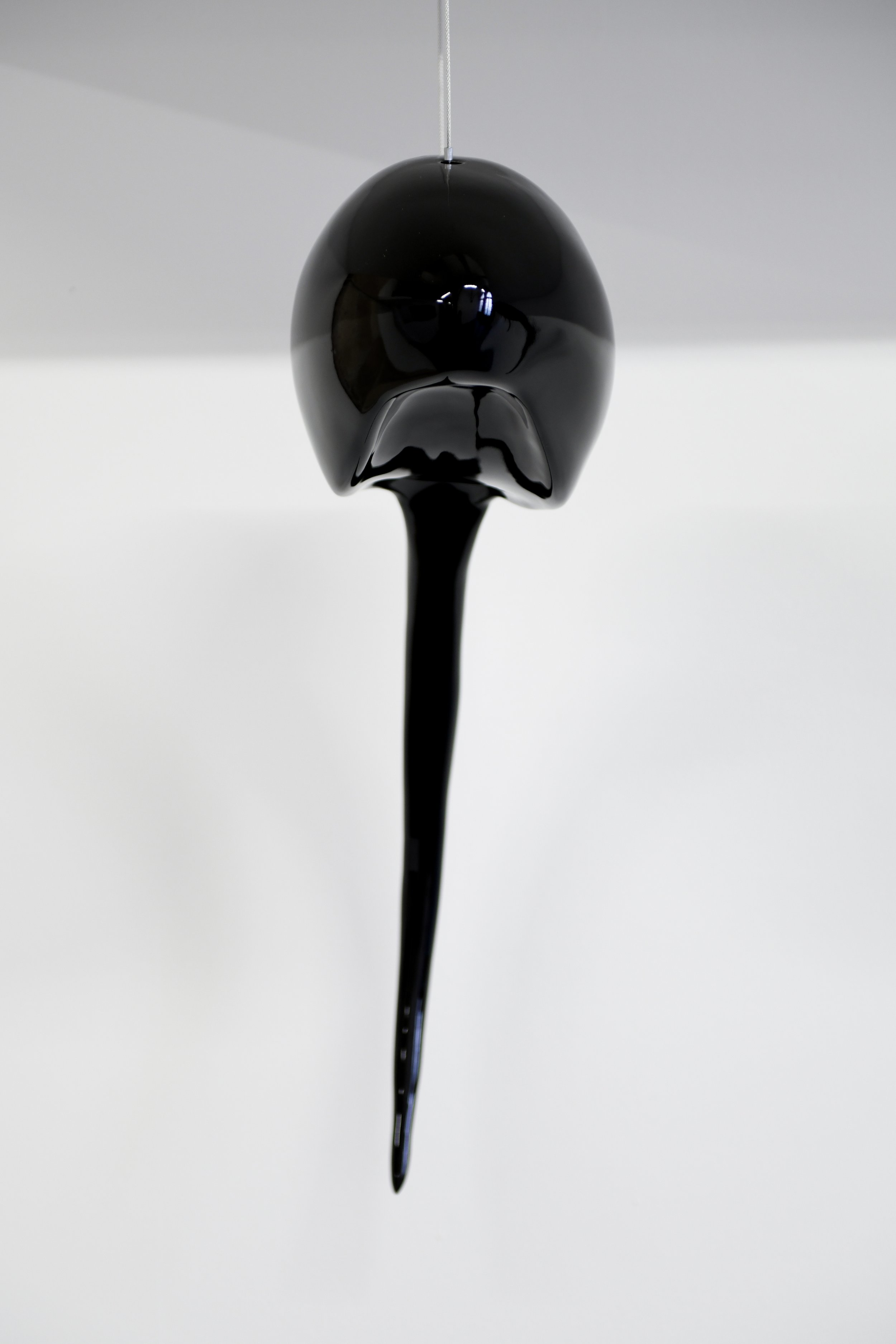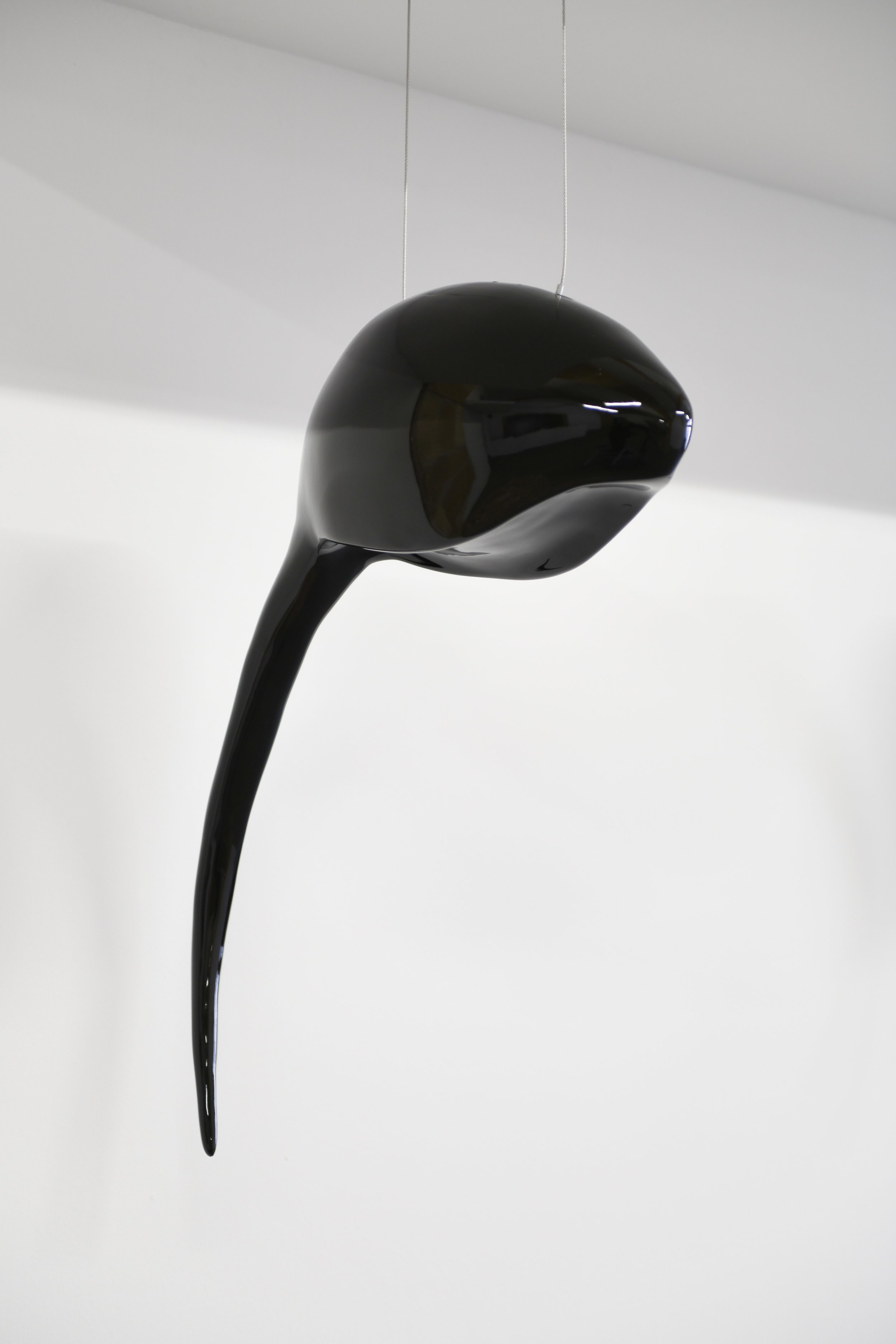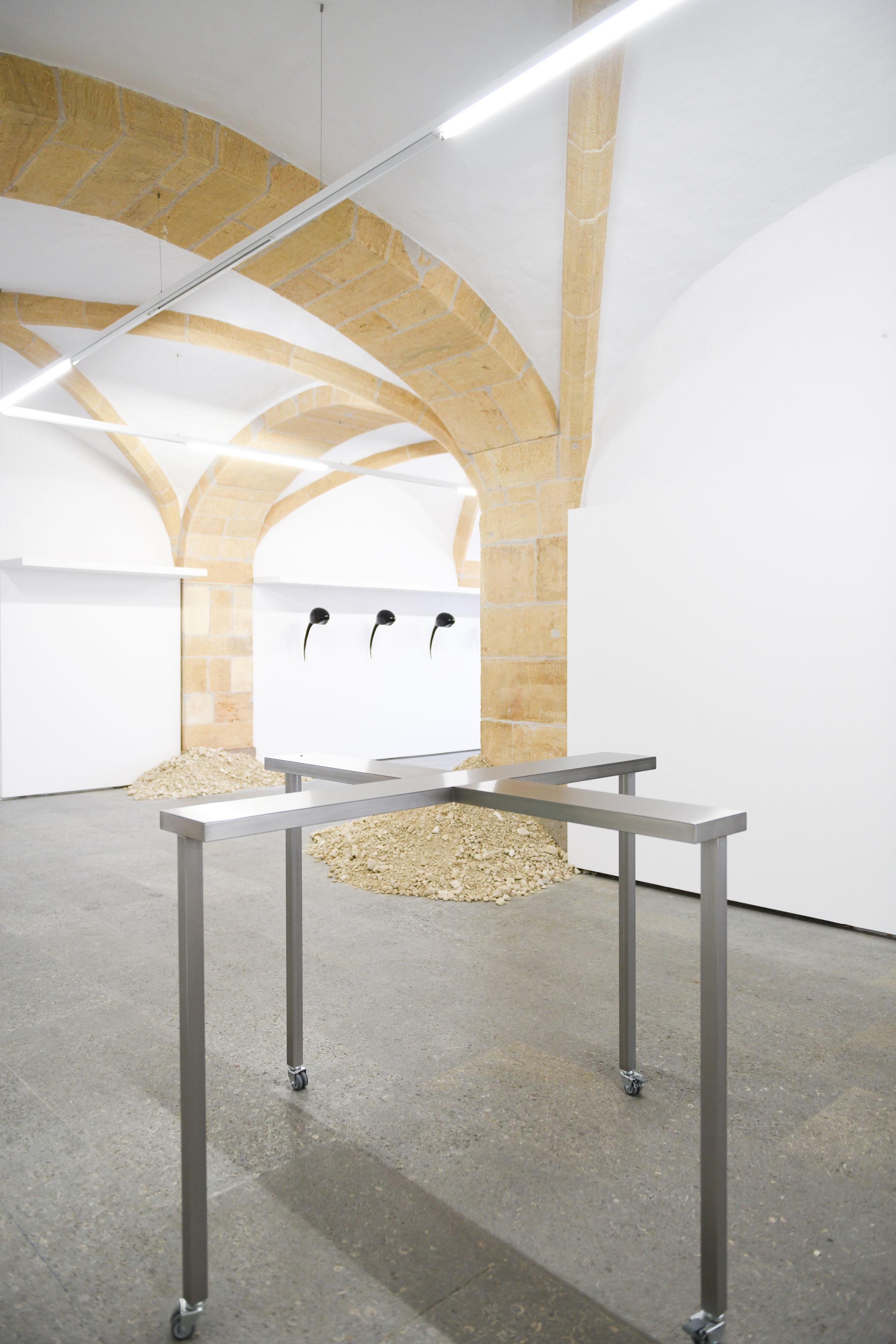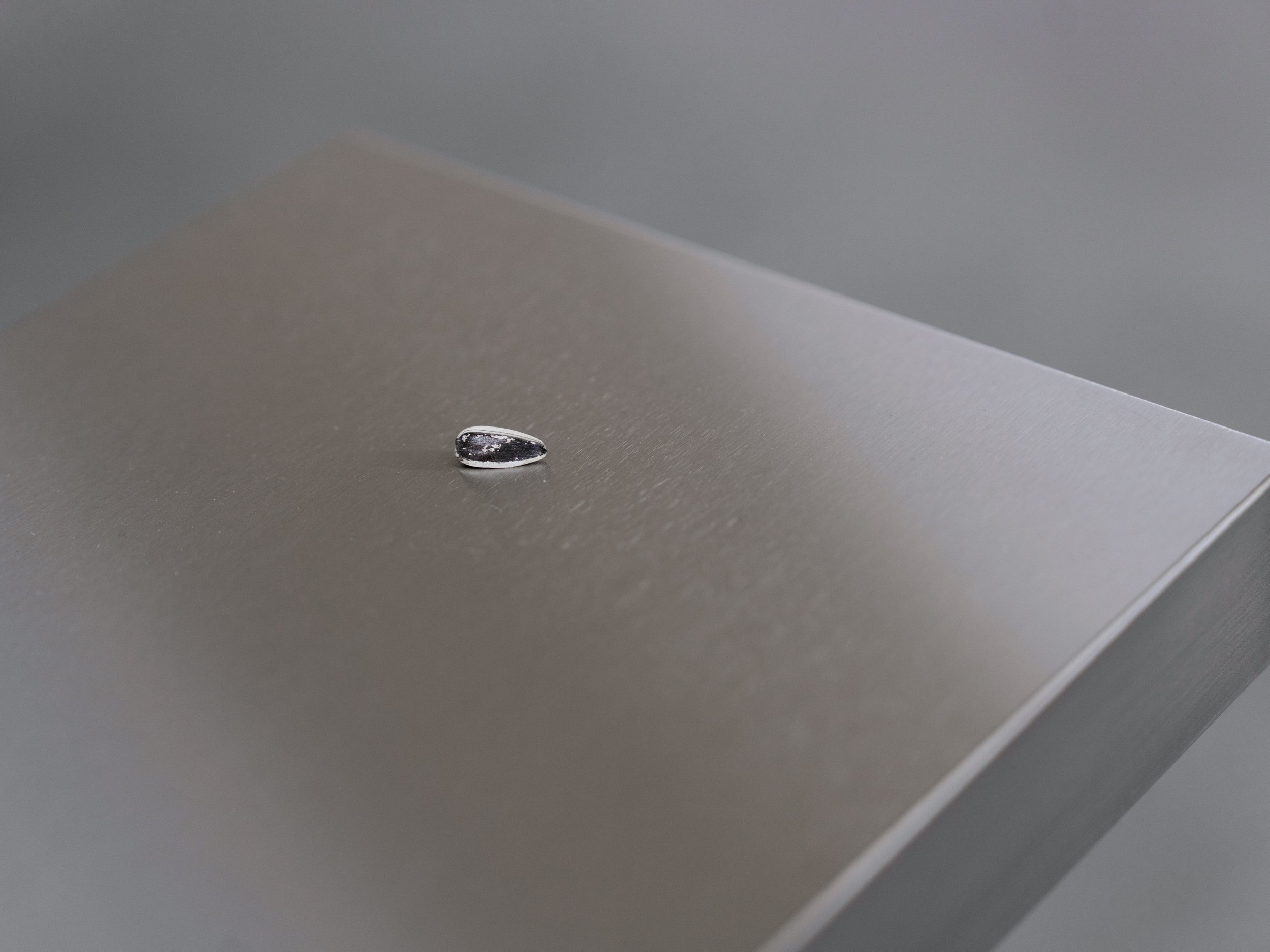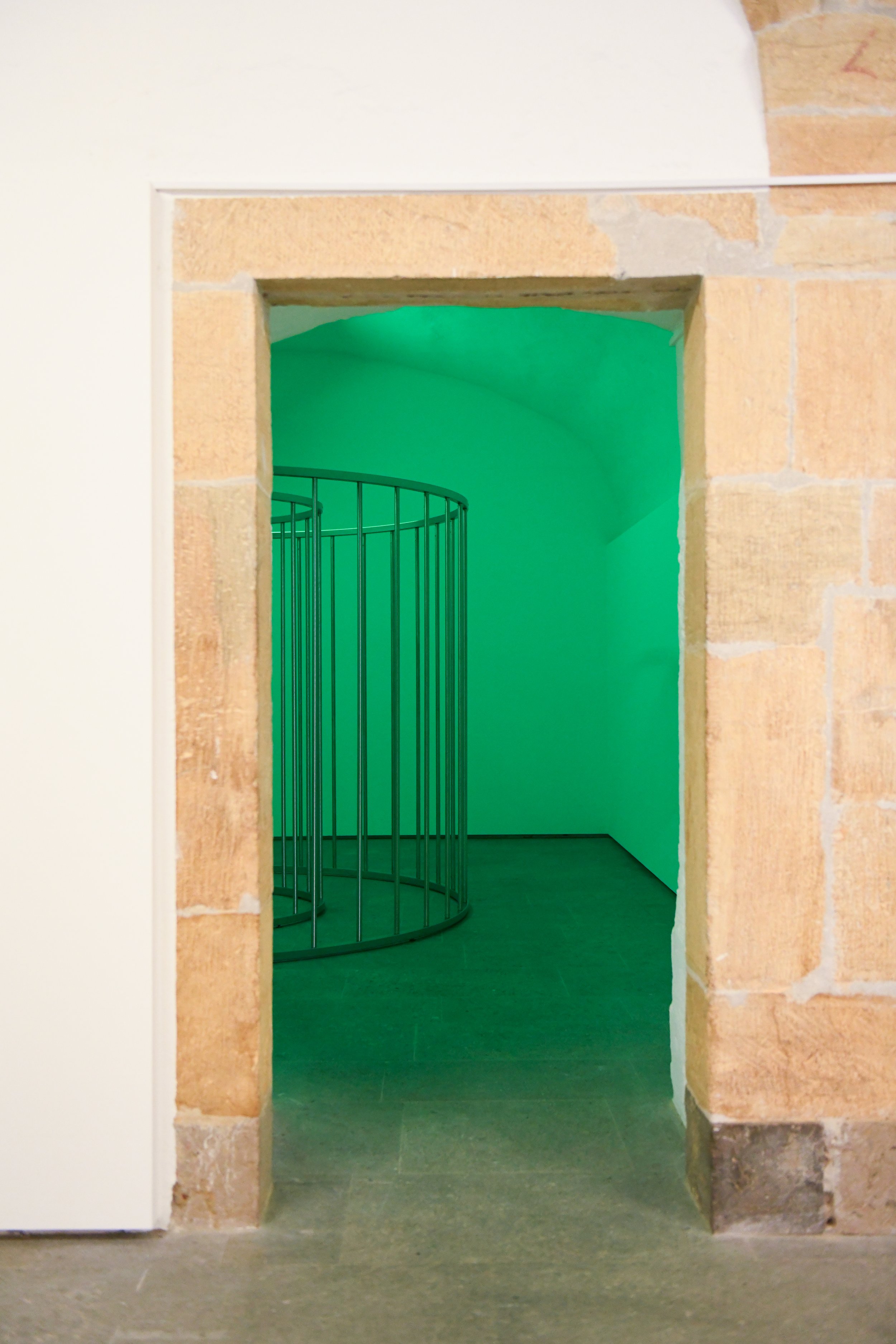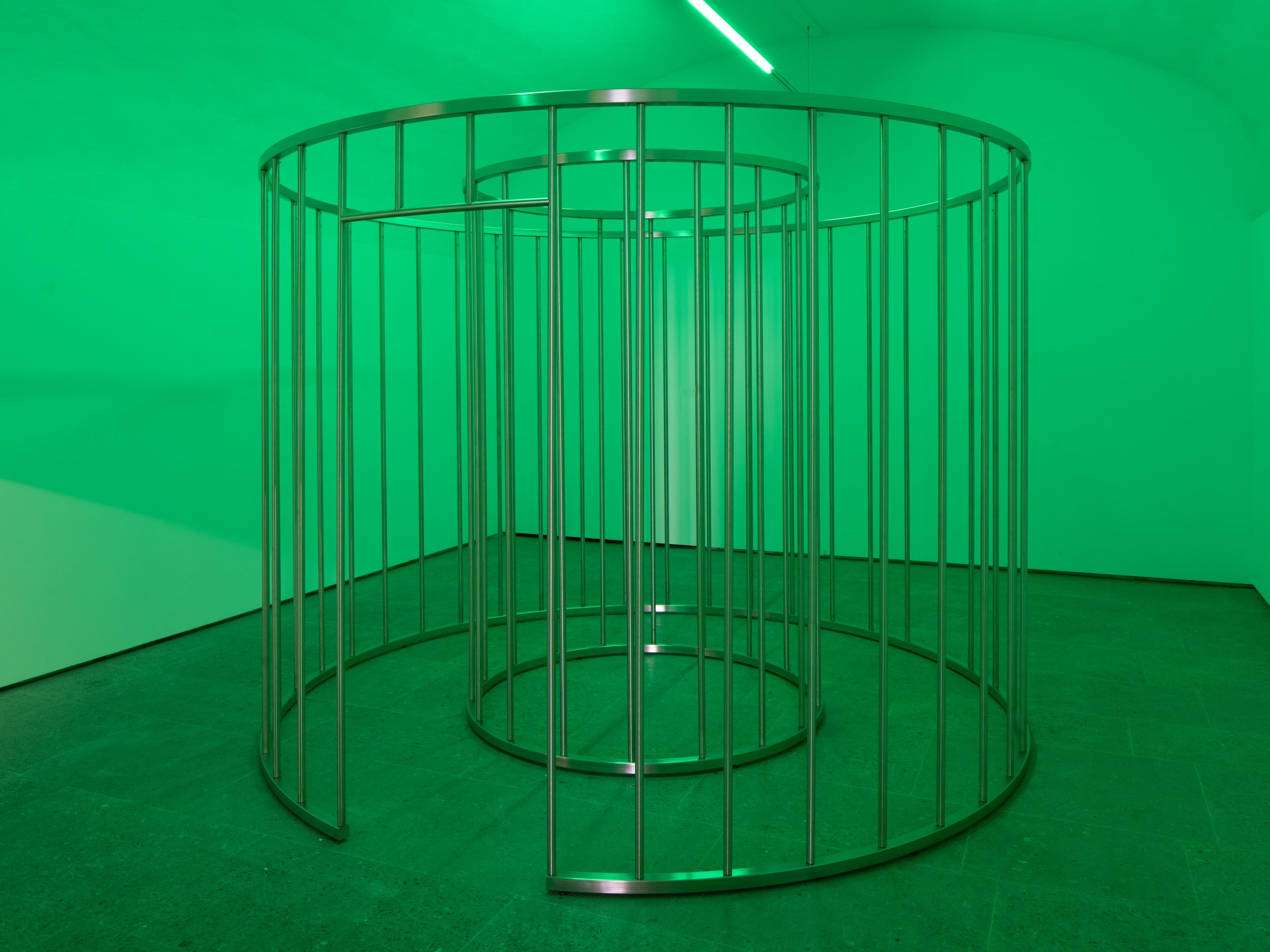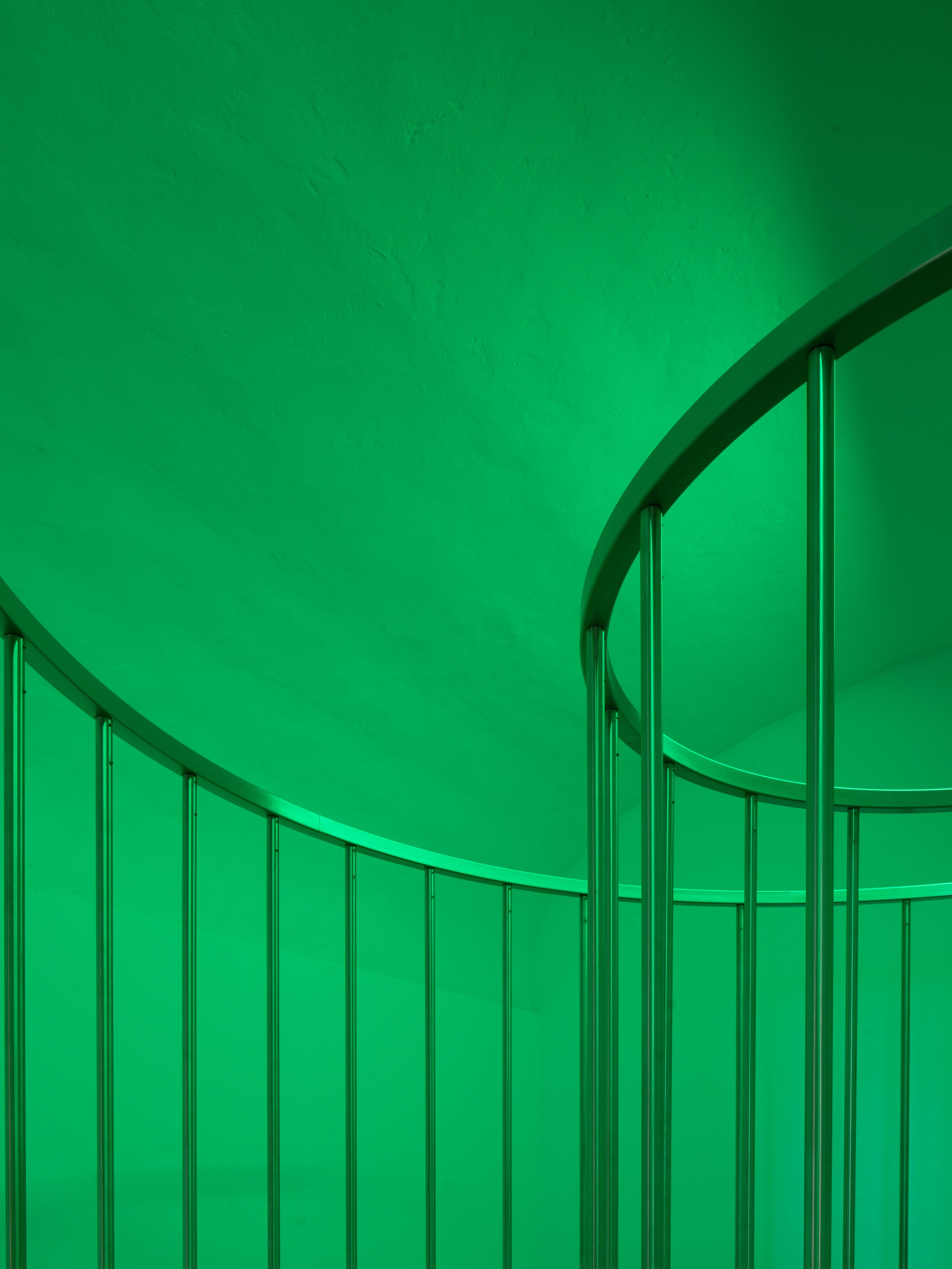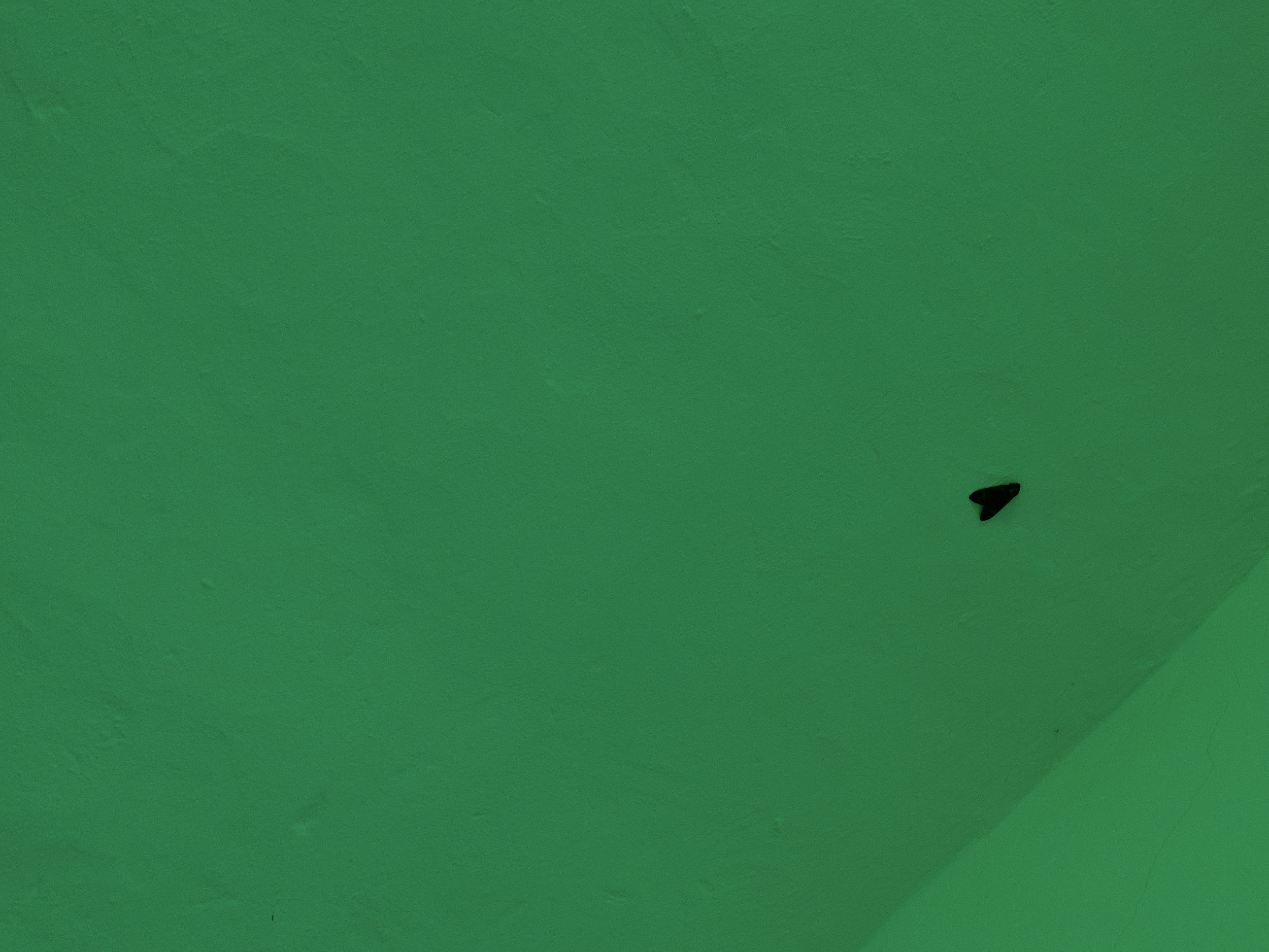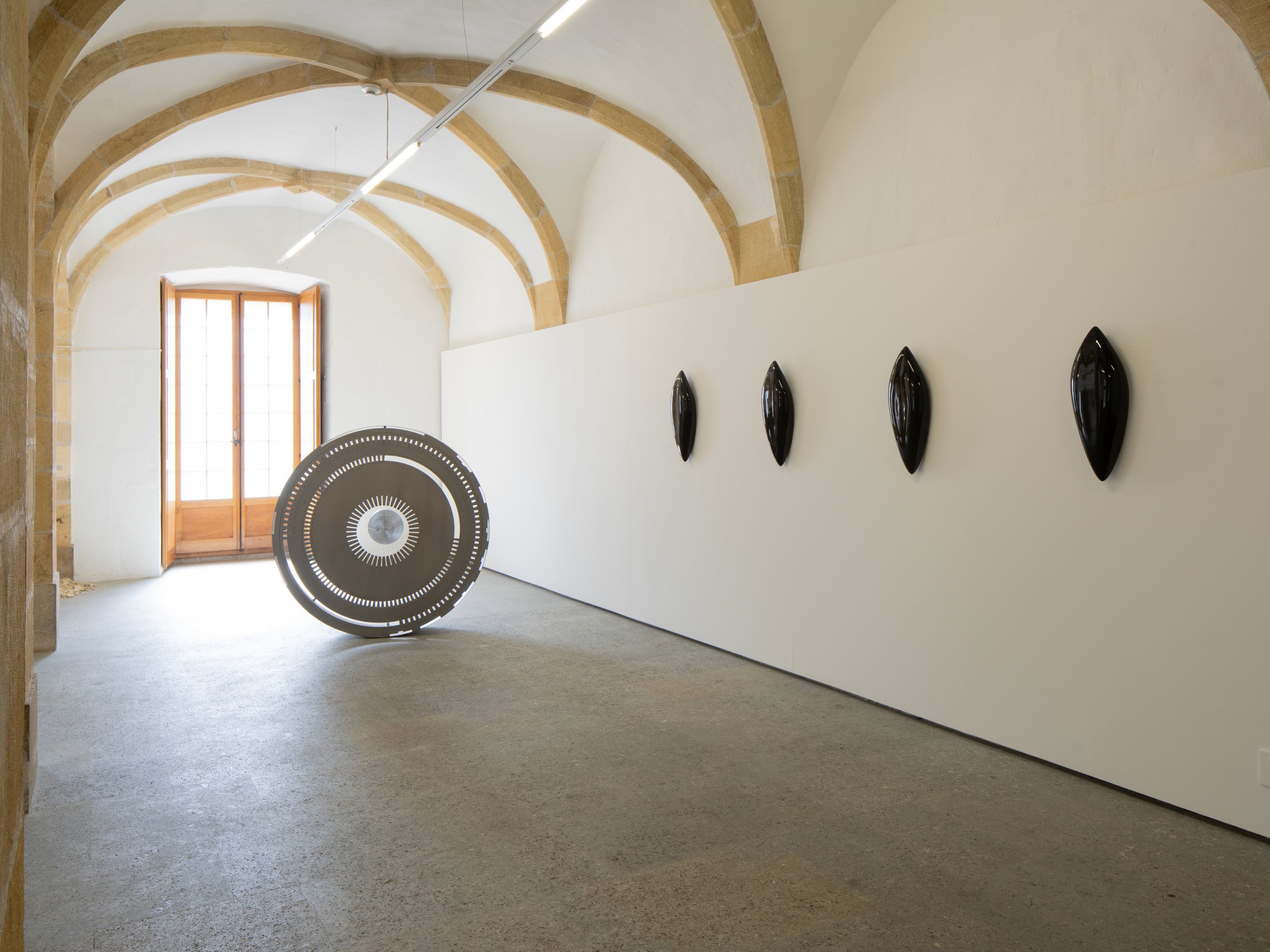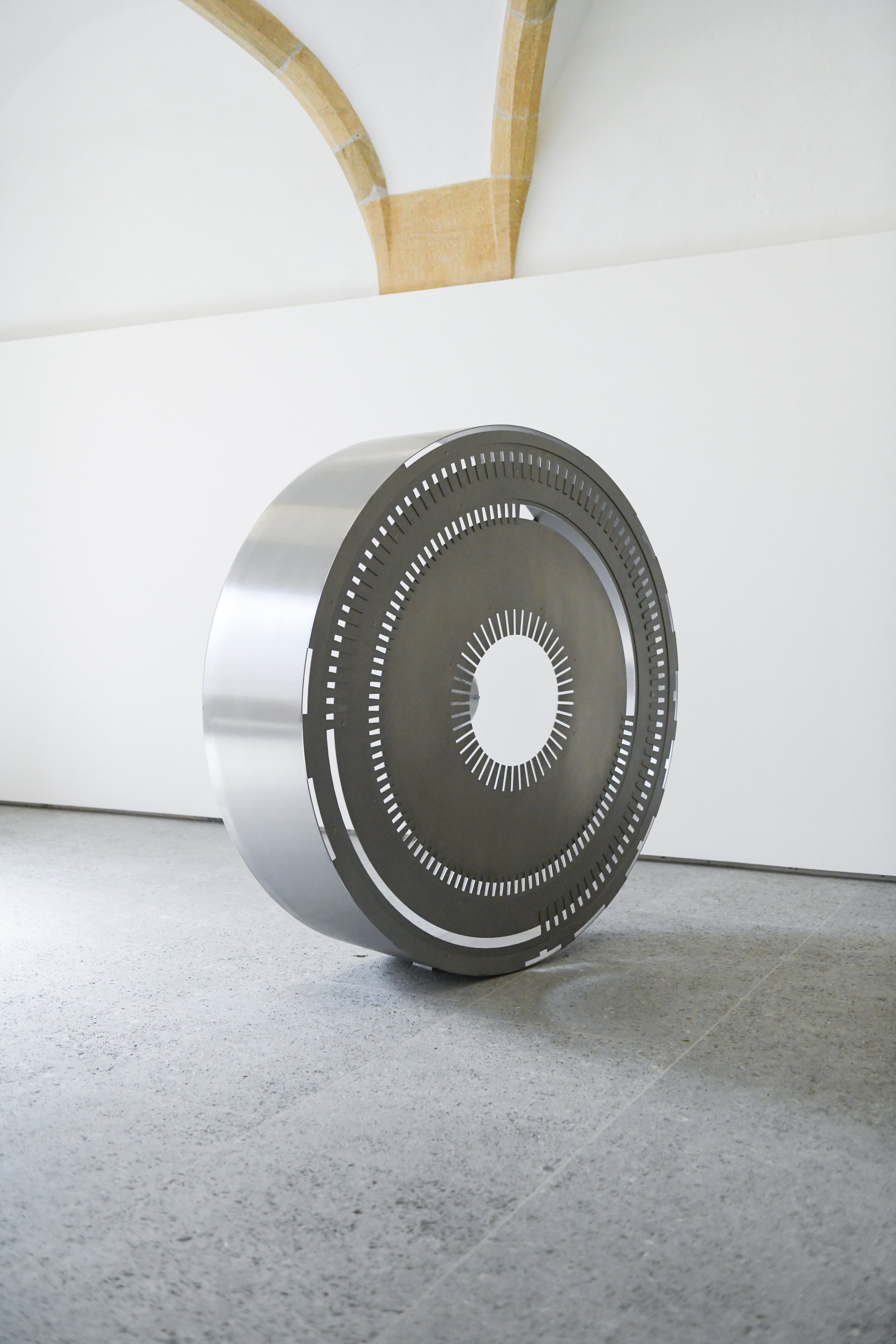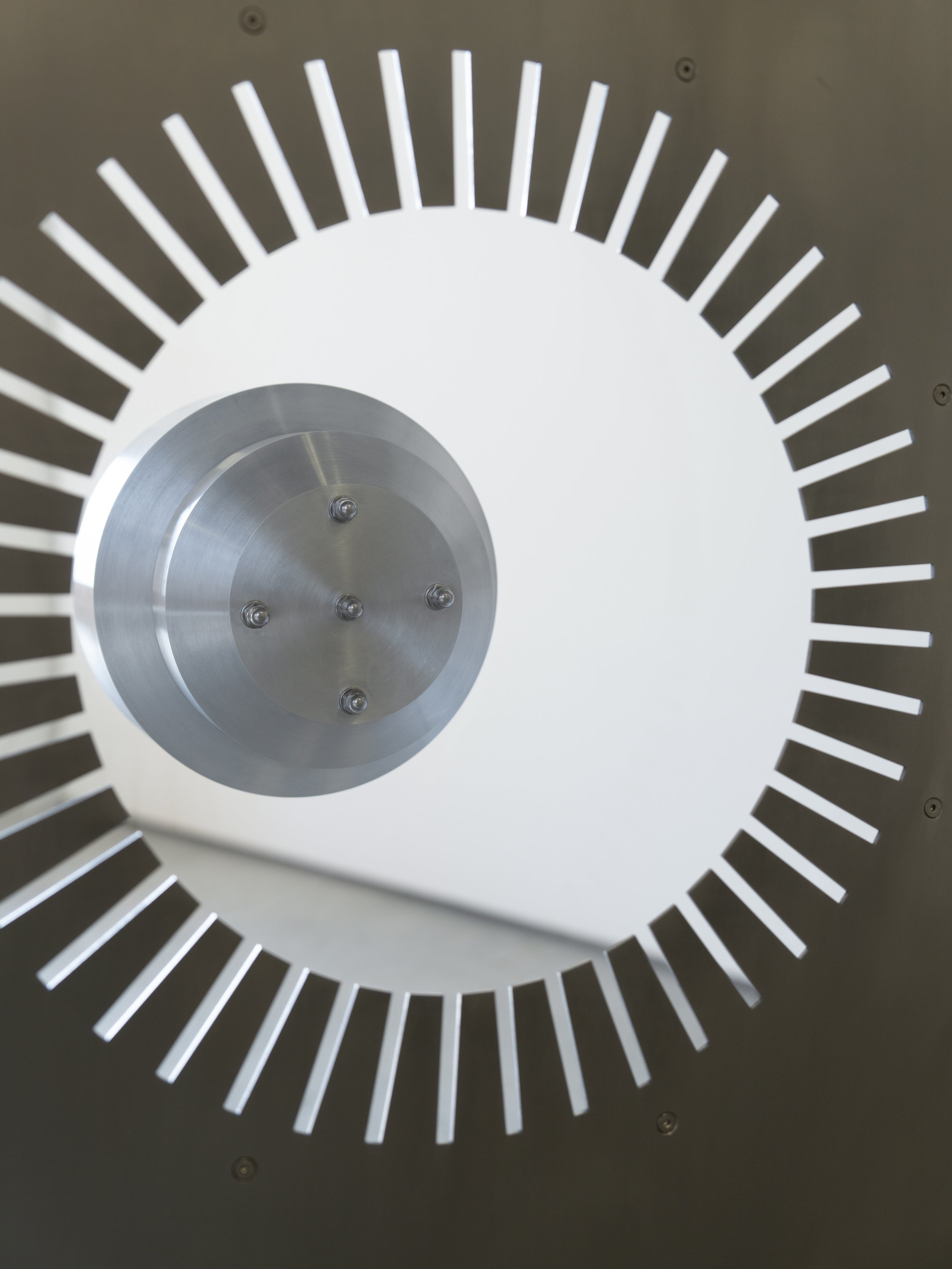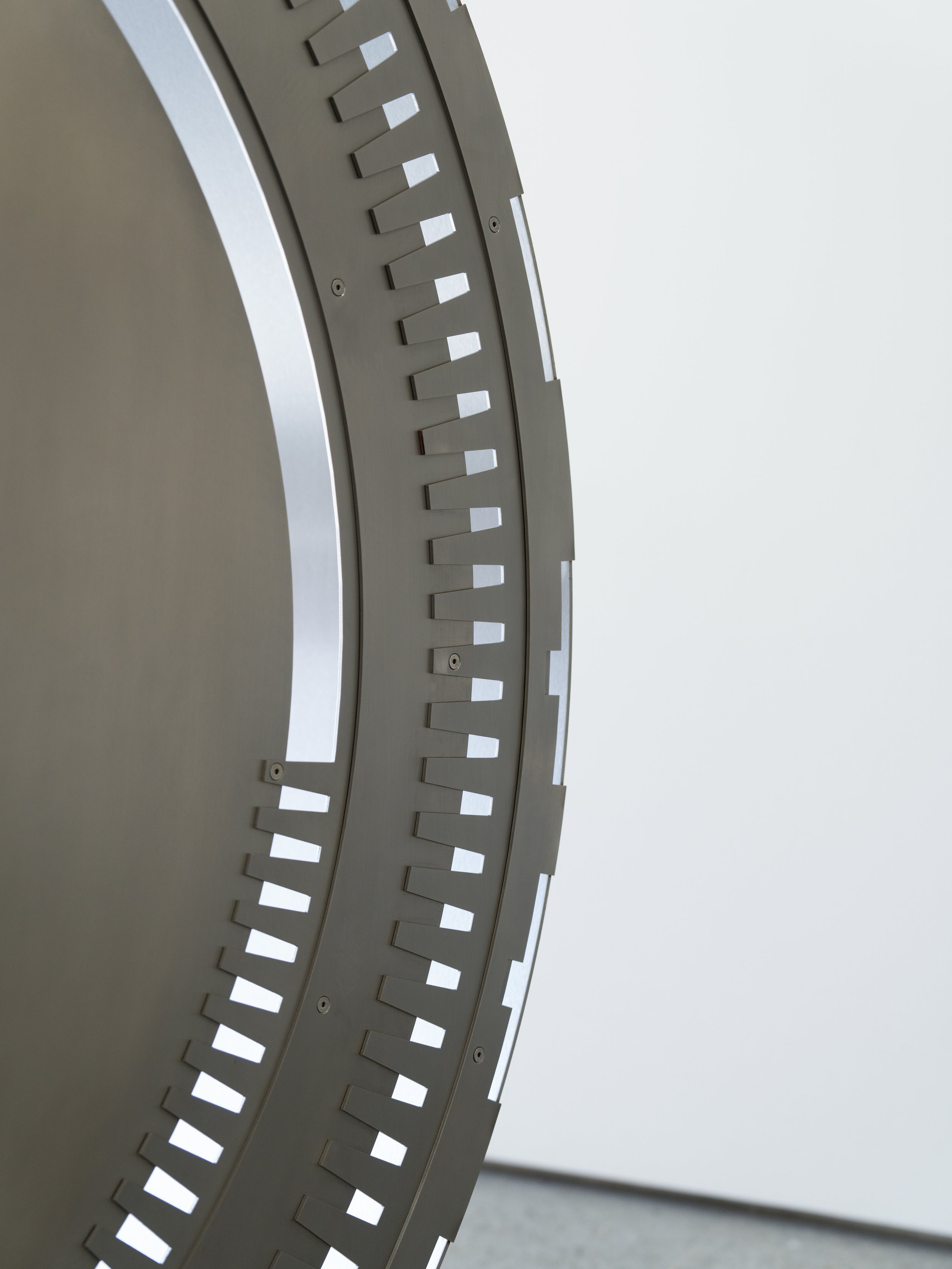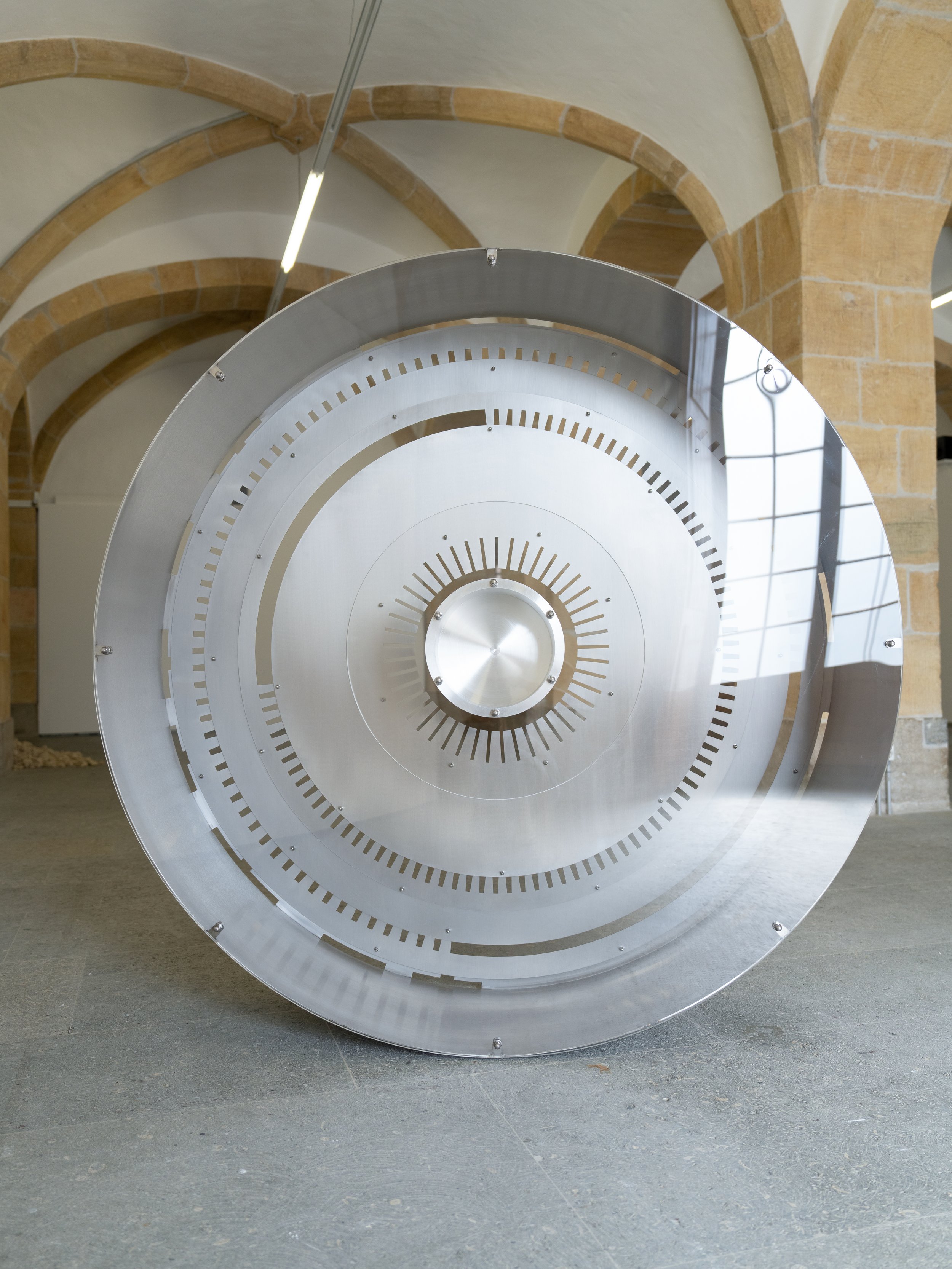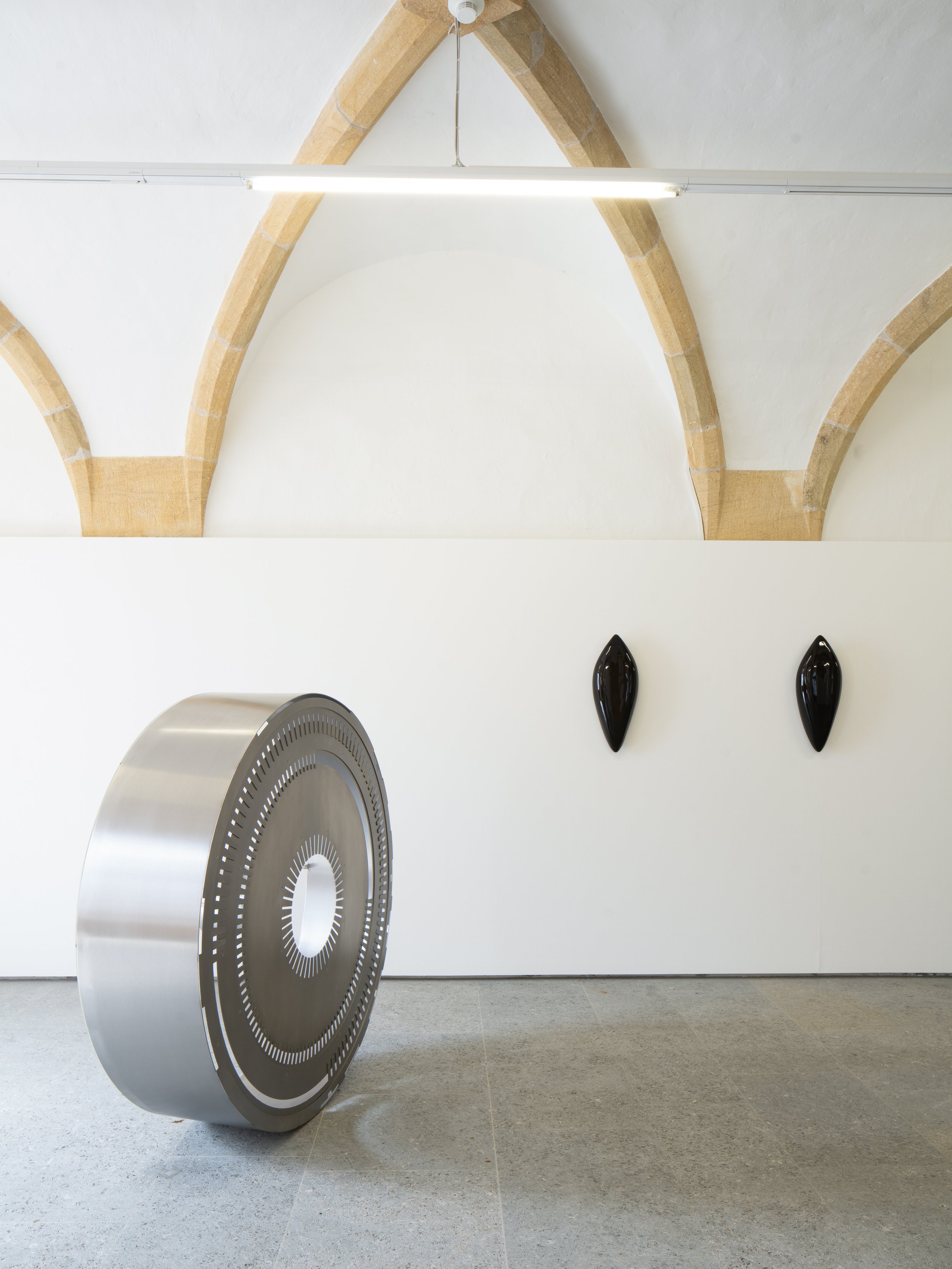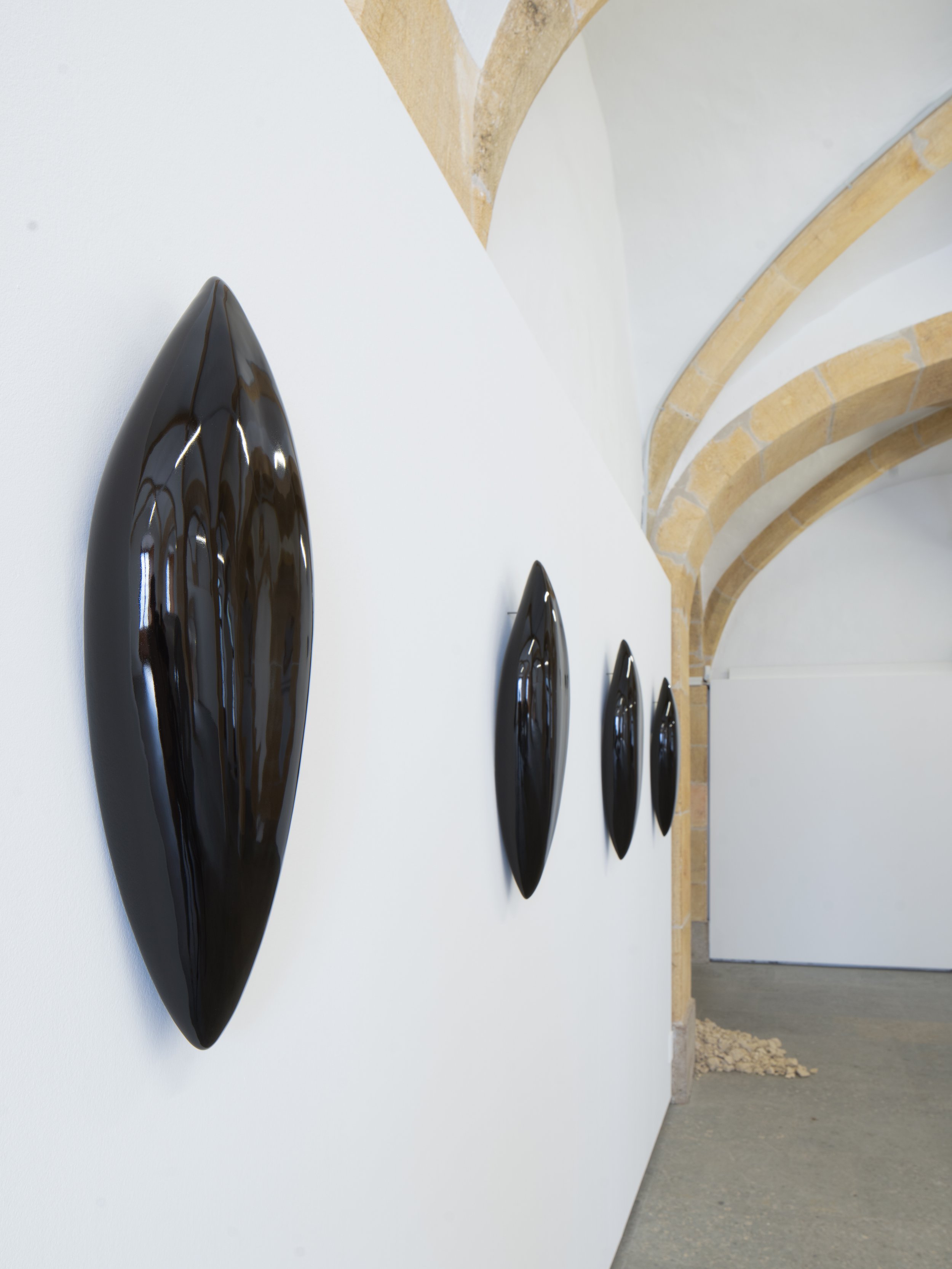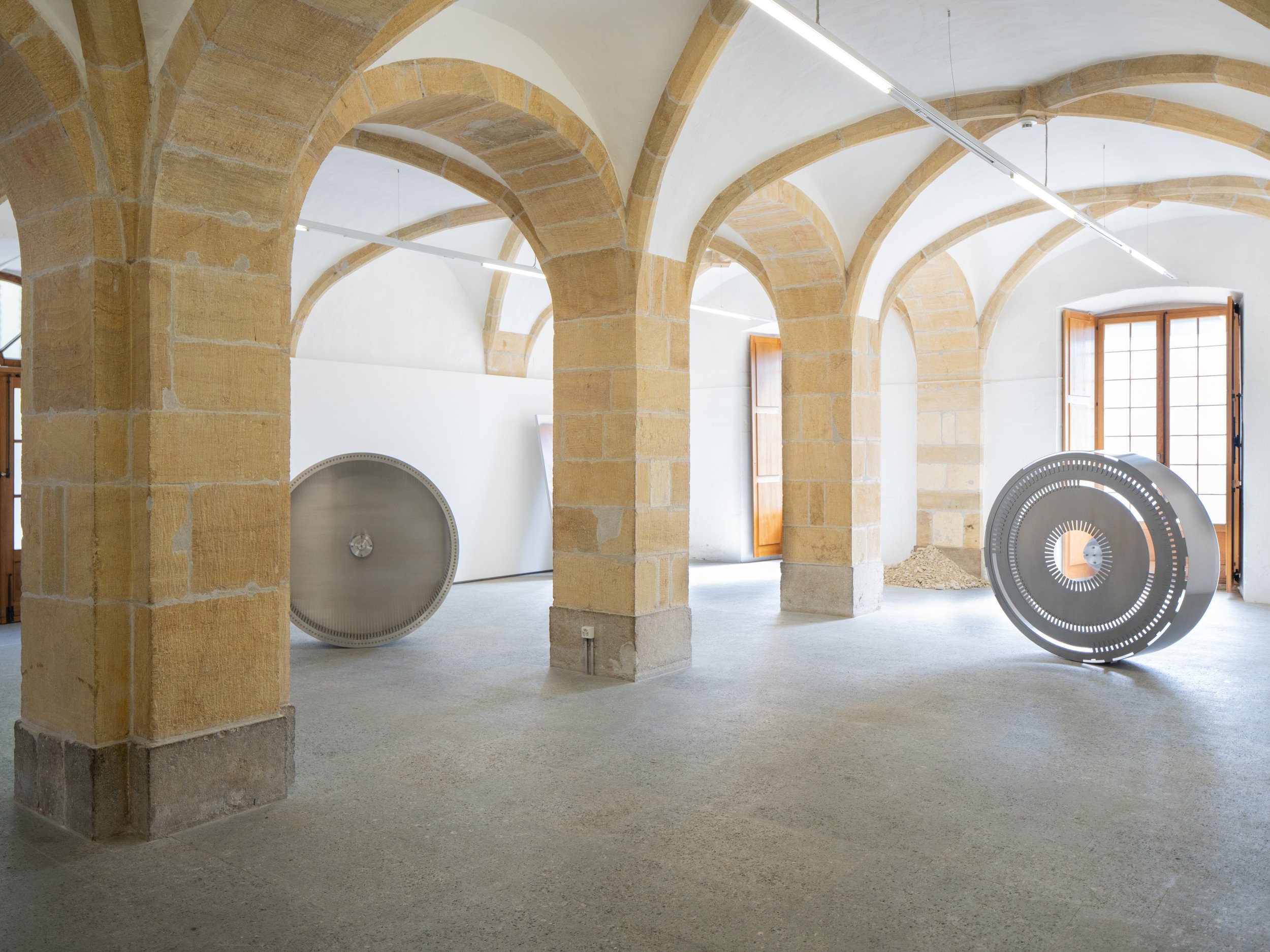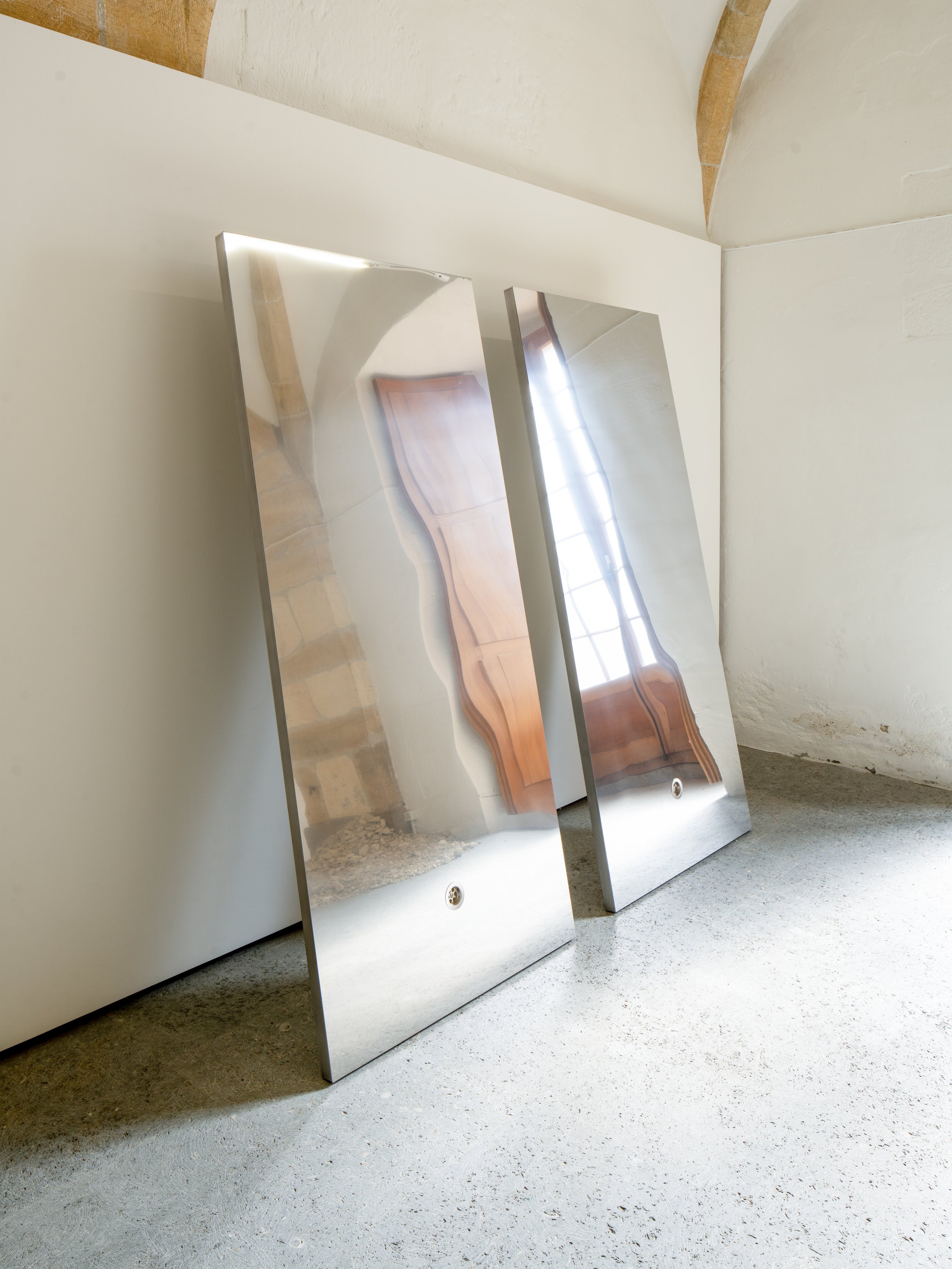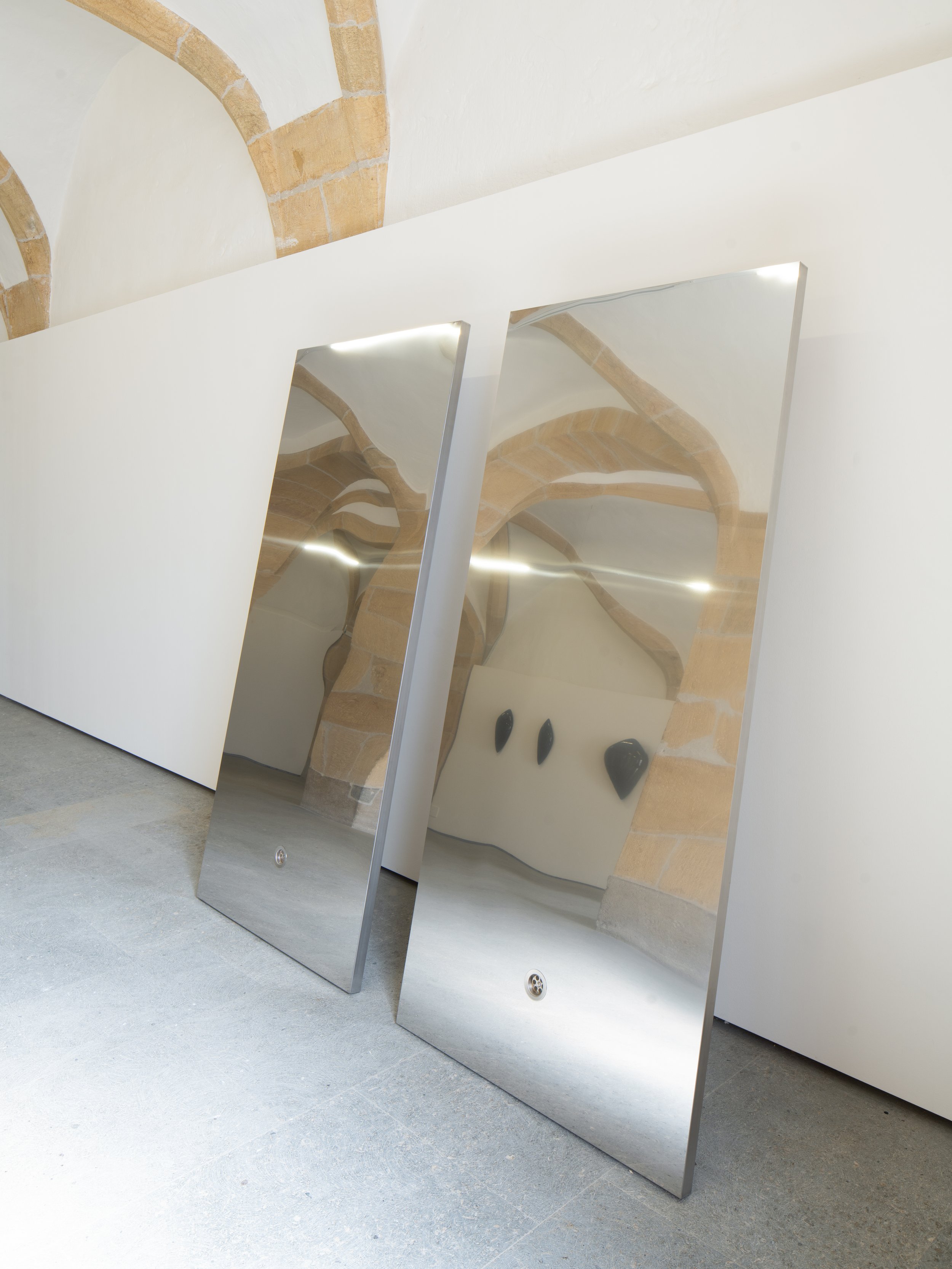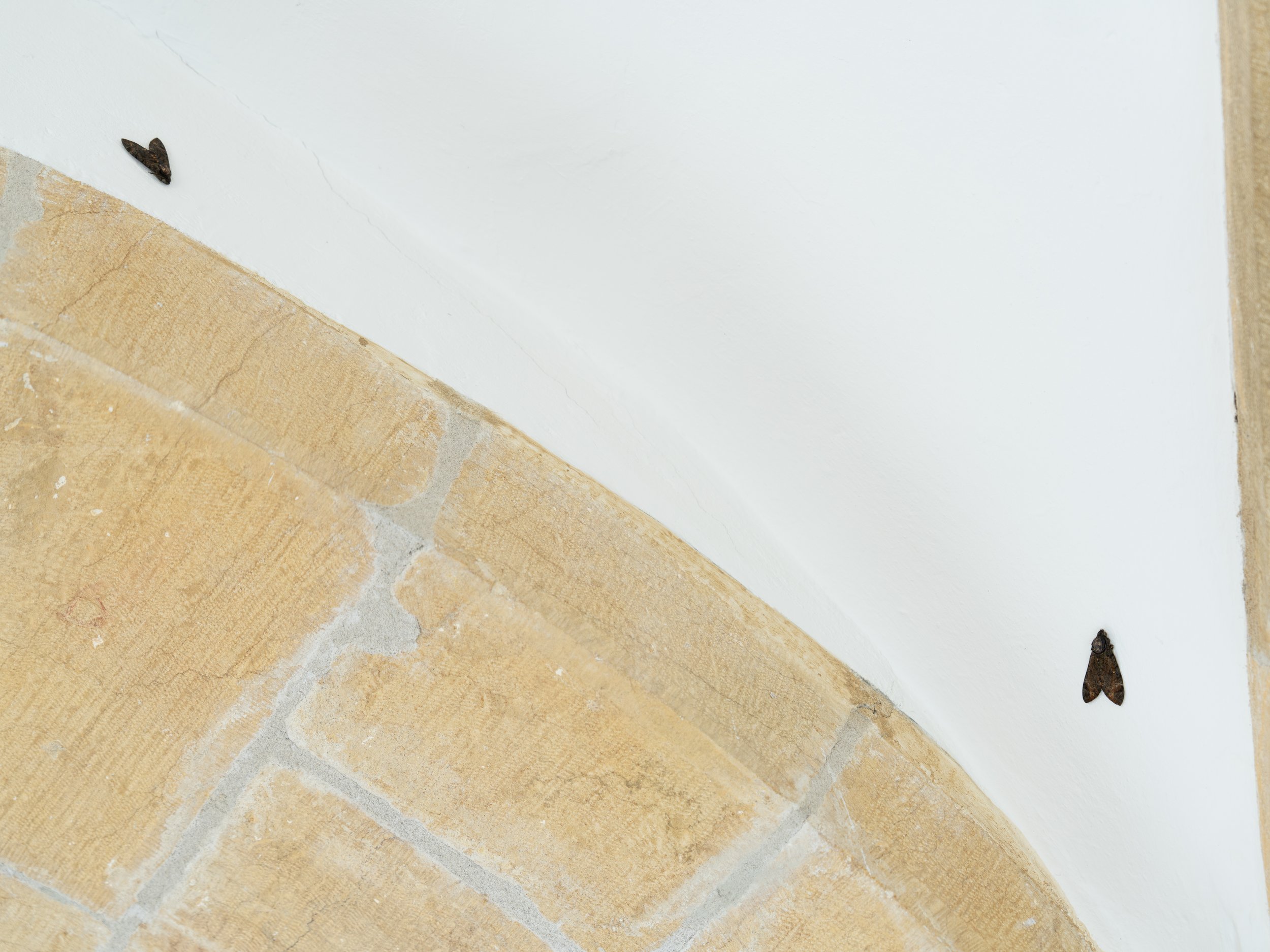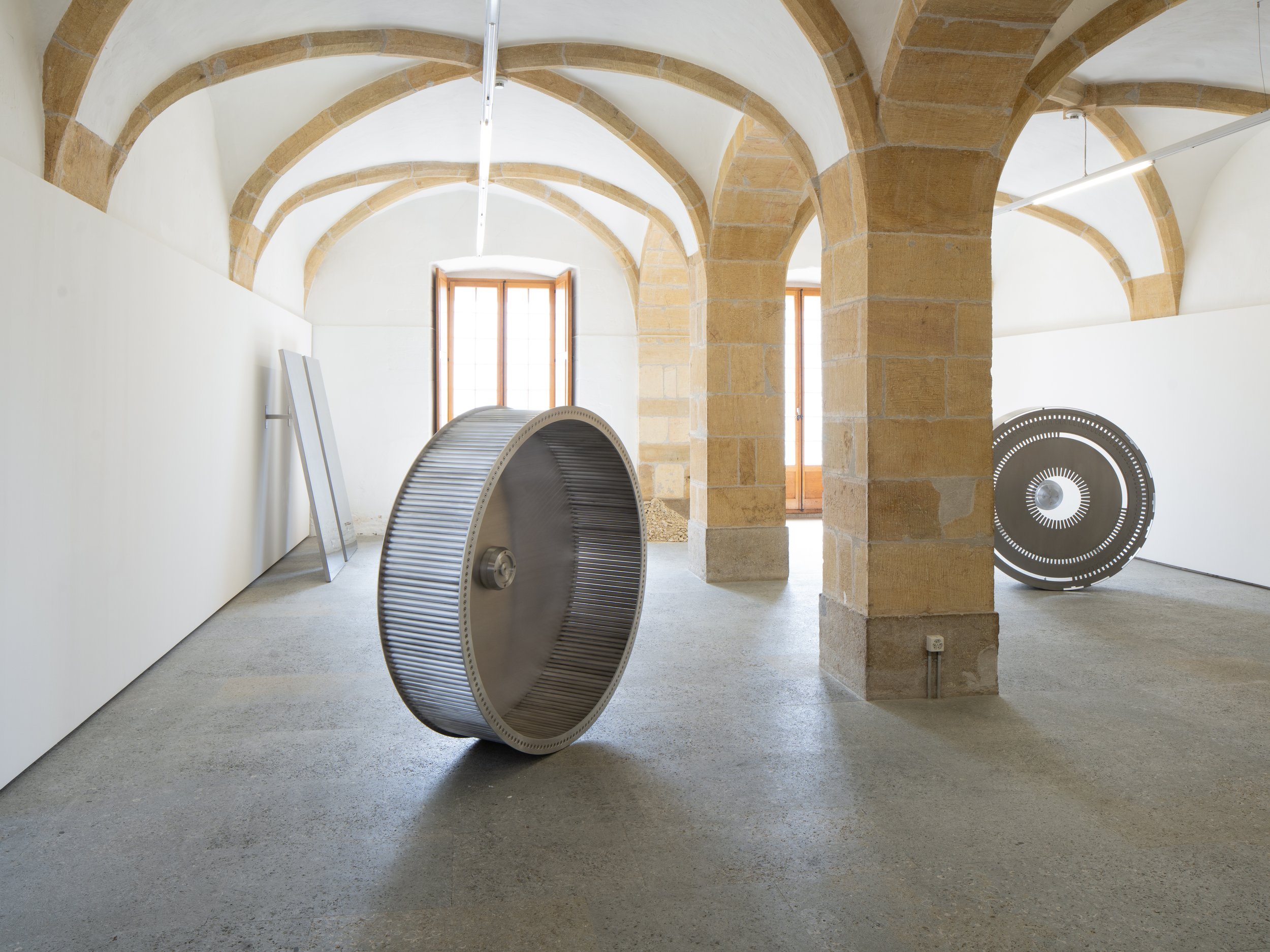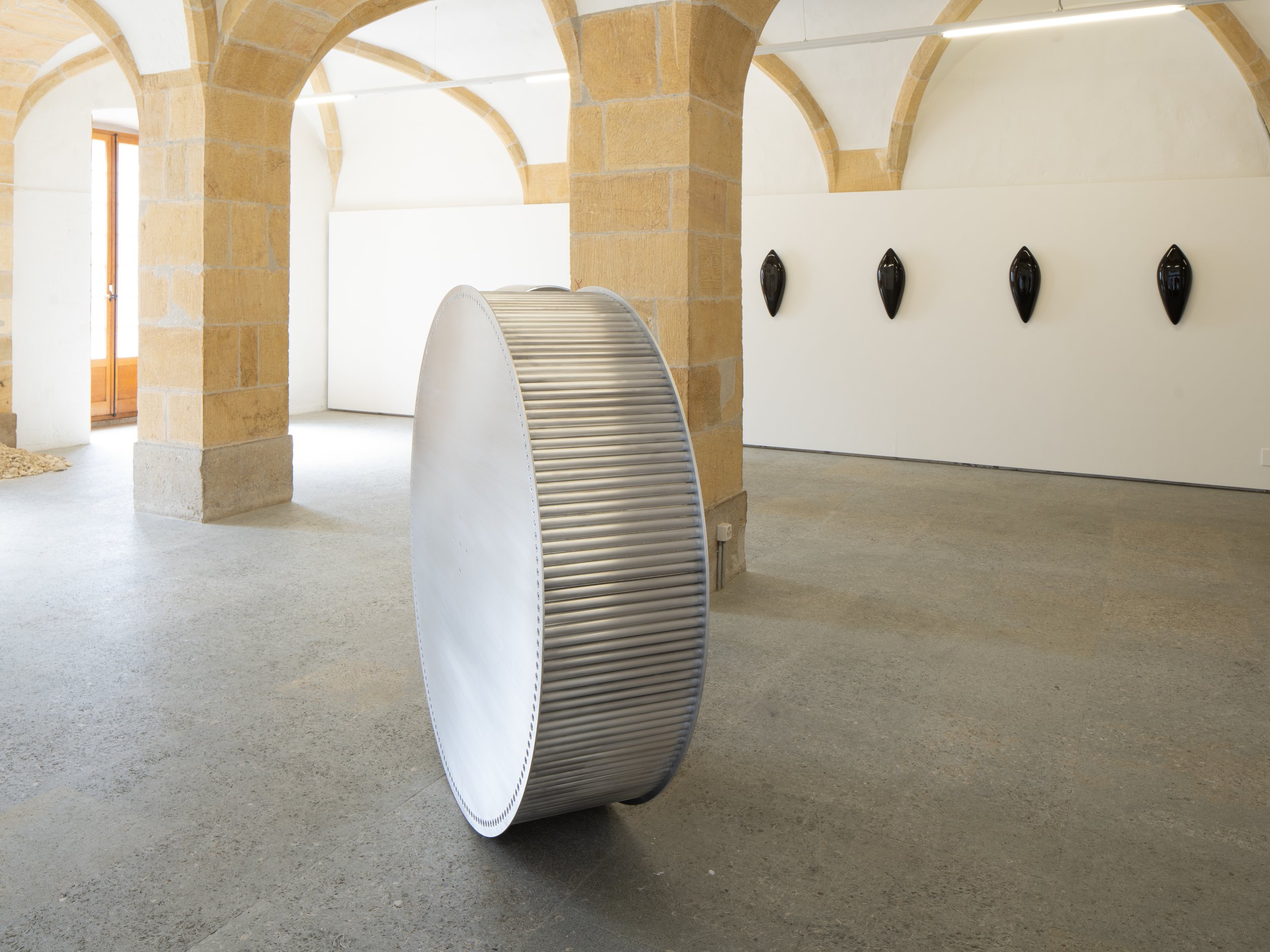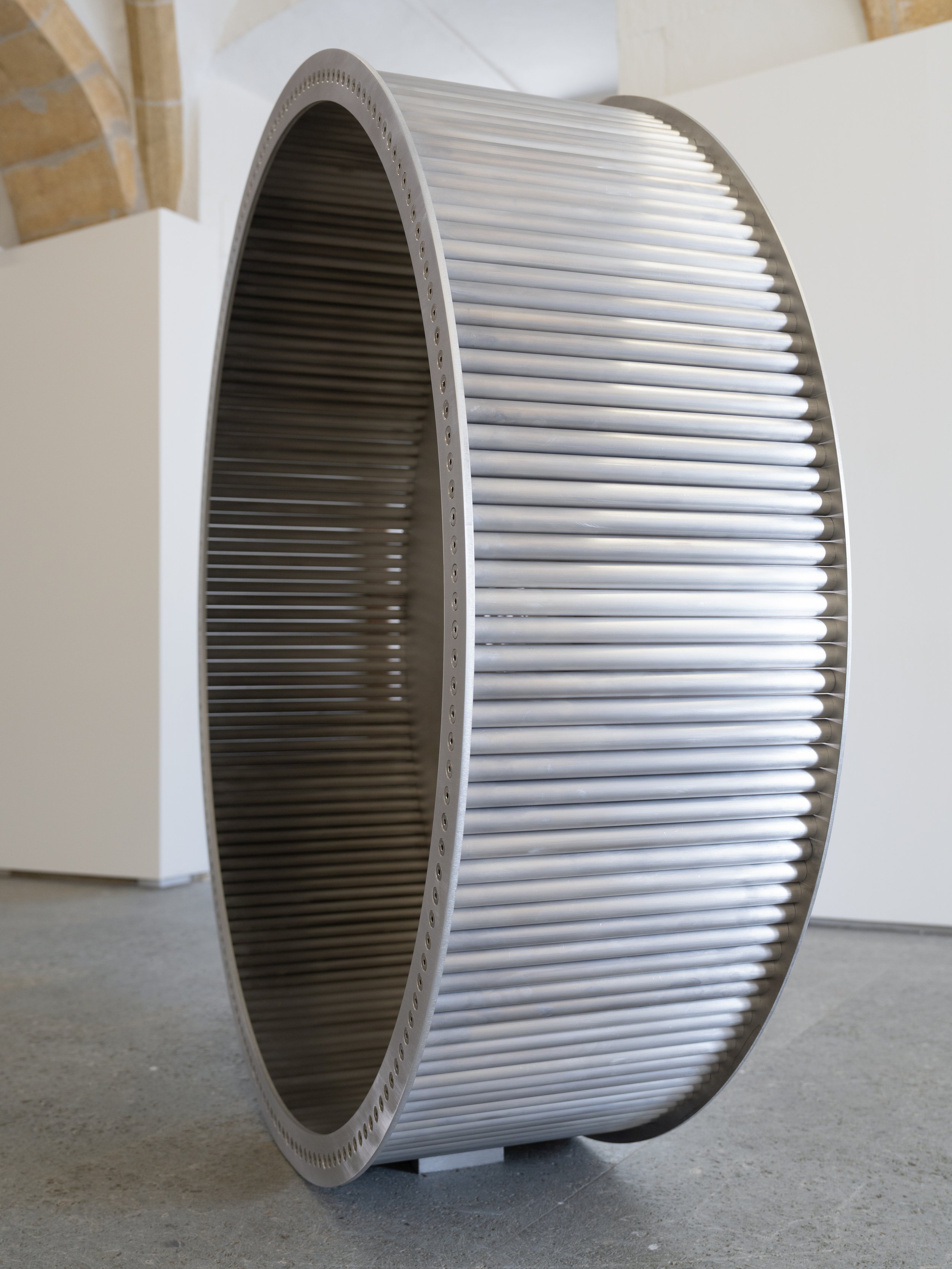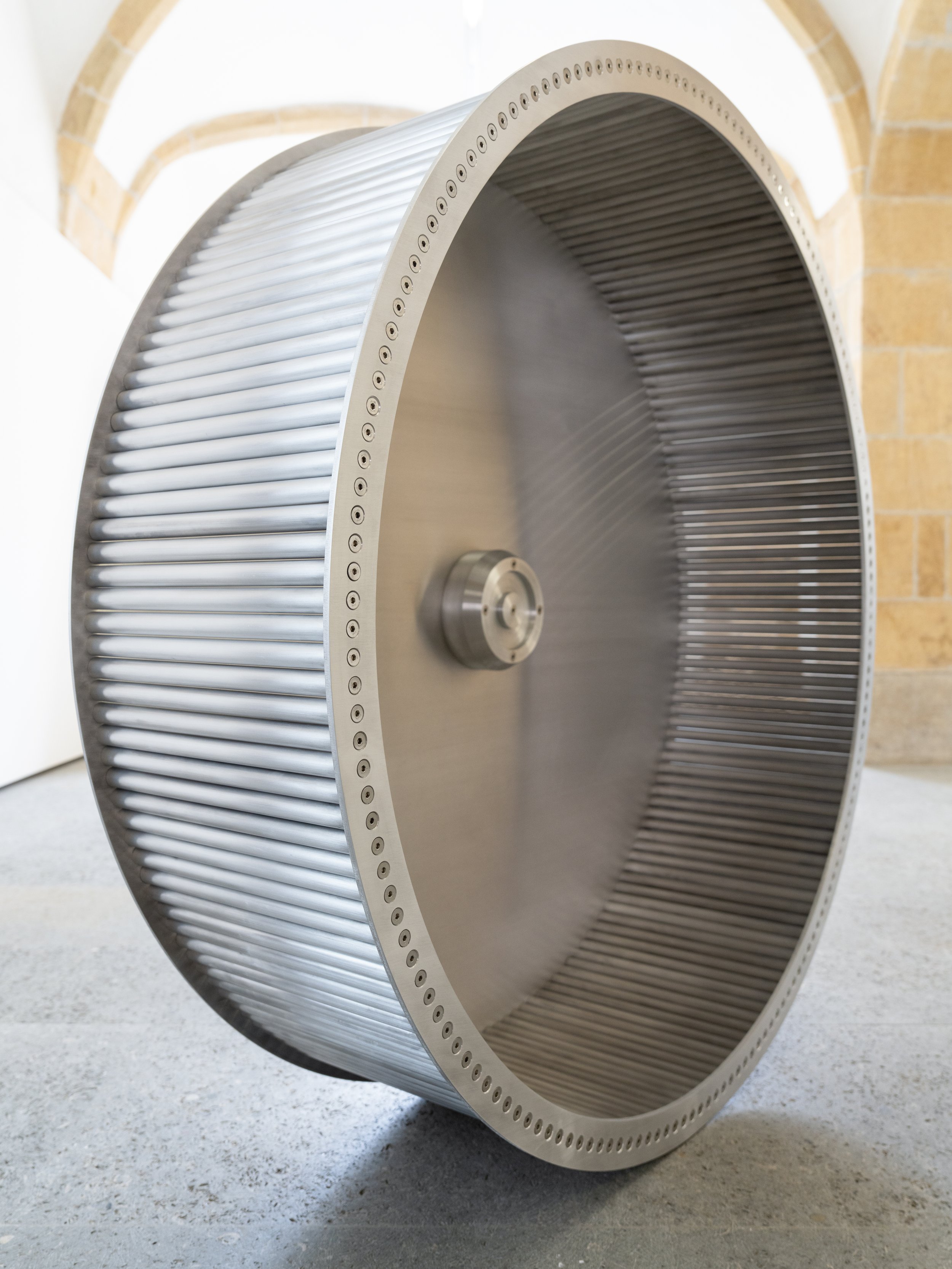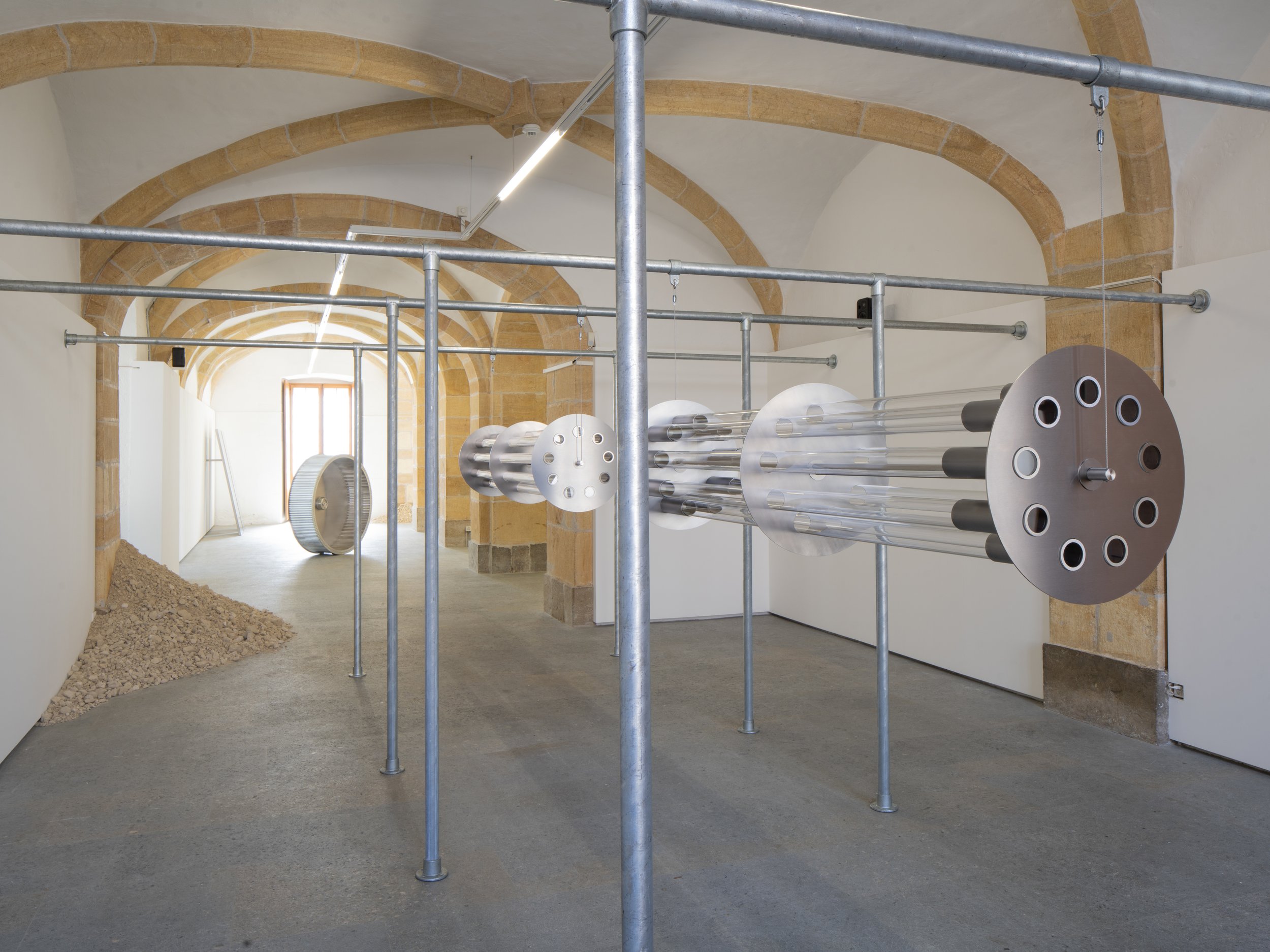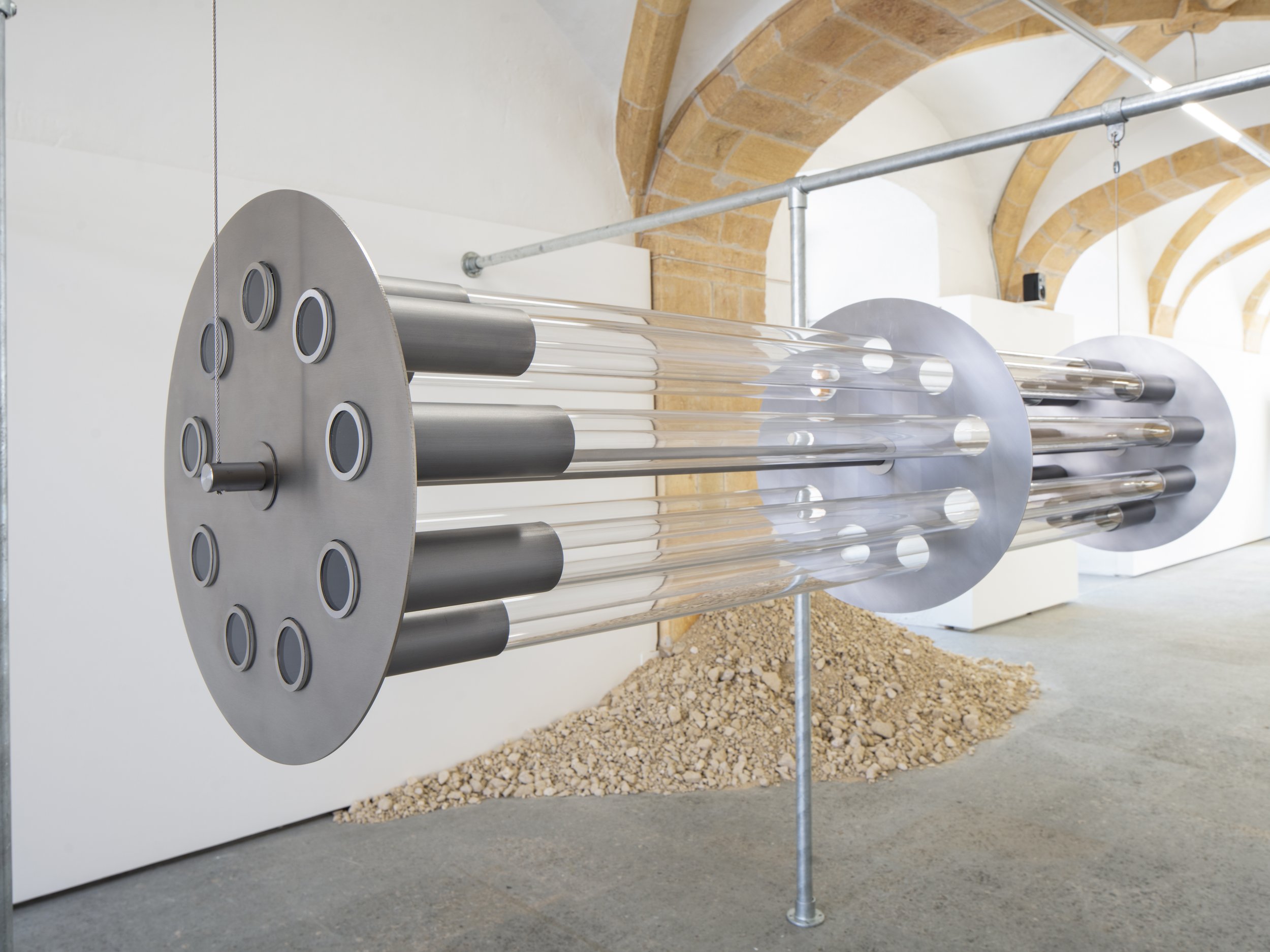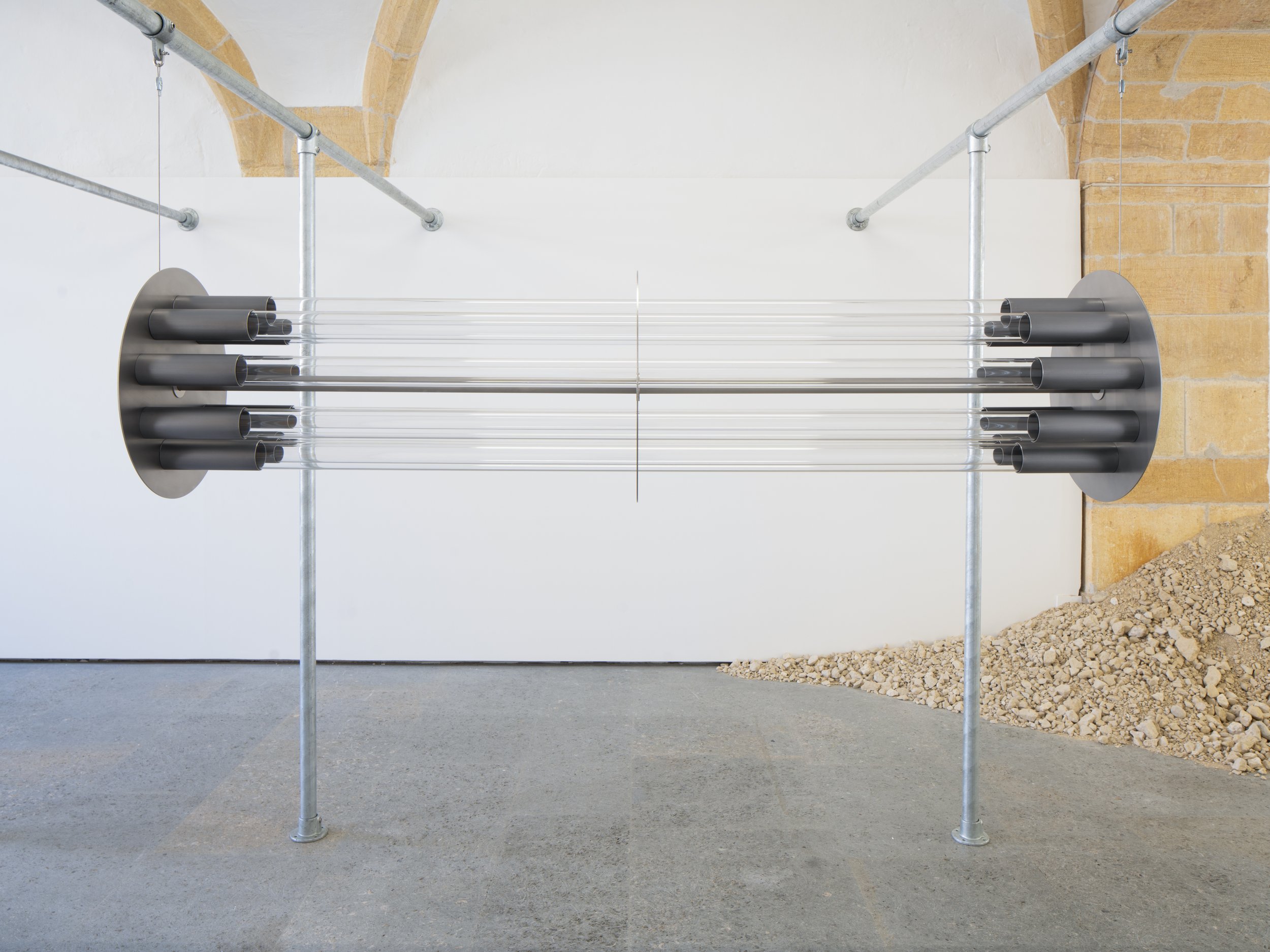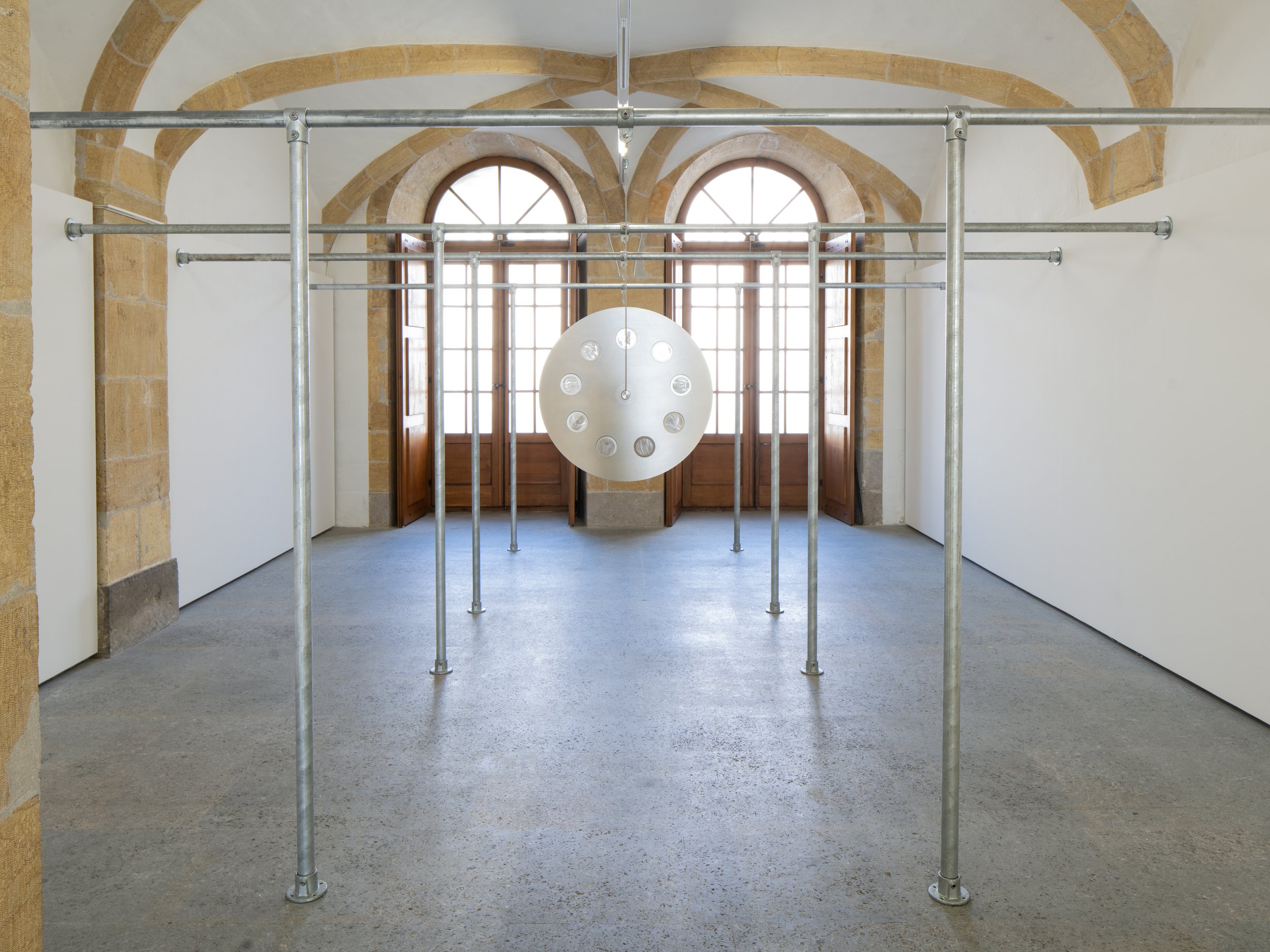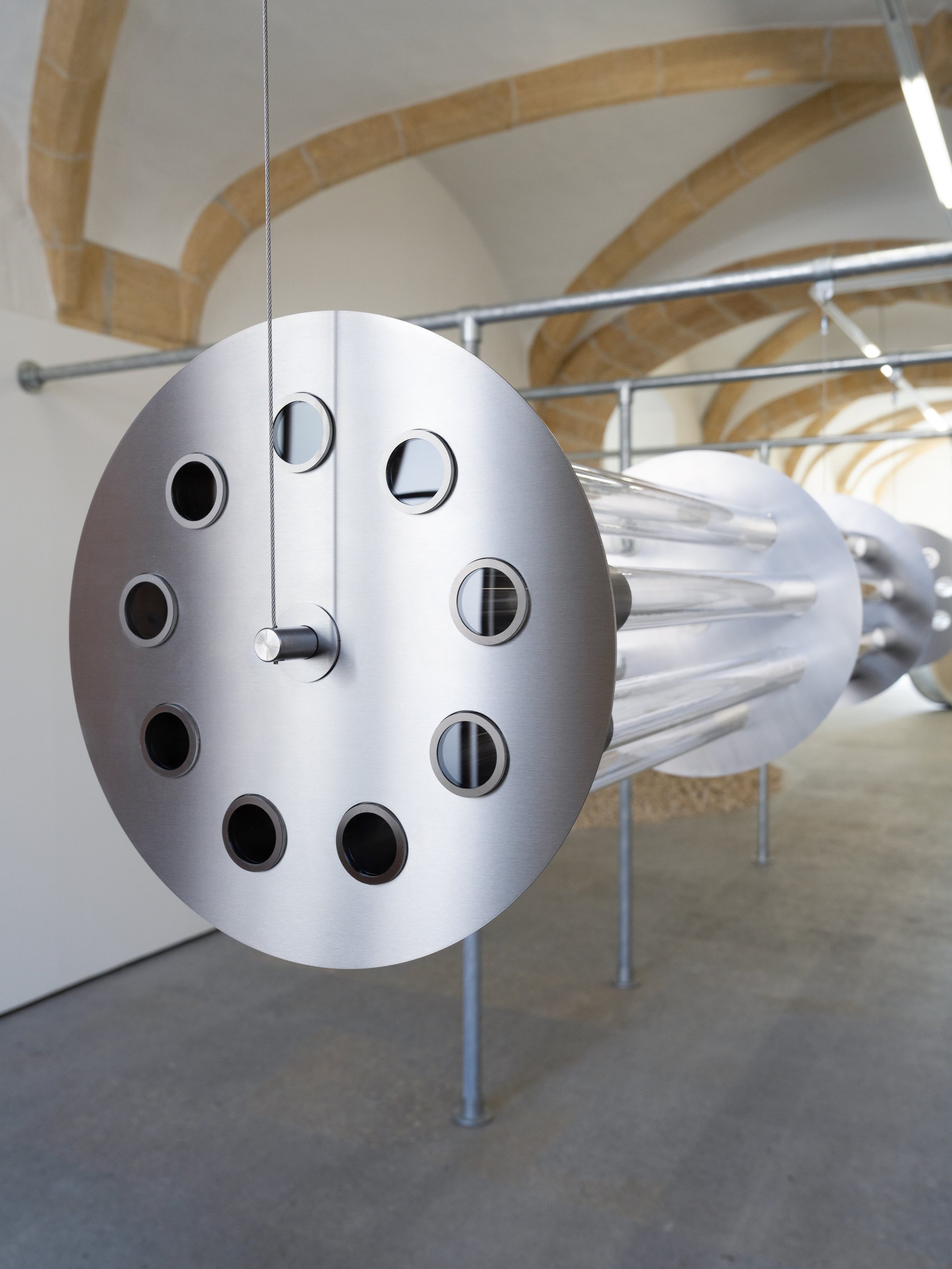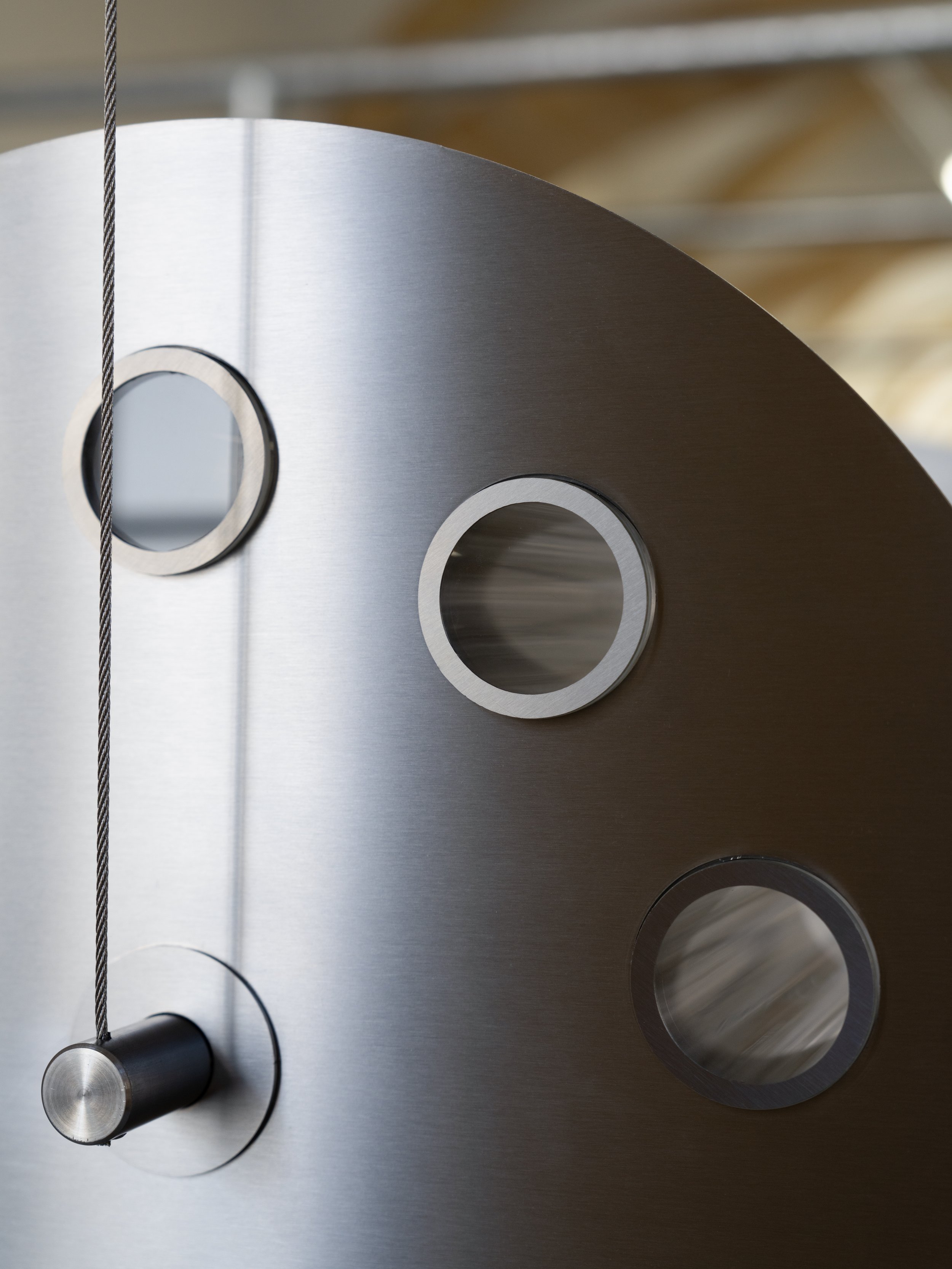Purity
Solo show, Centre d’Art Contemporain, Yverdon
A curious sensation may overcome us as we explore the exhibition PURITY. The artist Anita Mucolli wanted to give her audience the illusion of entering a recently abandoned, secret laboratory. The sound that spreads throughout the exhibition space hints at its activity, or the memory of it. The impression of invading a forbidden space in which something unsettling is hatching out is accentuated by the piles of stones spread all around. Through this atmosphere, Anita Mucolli gives material form to the preoccupations that invest her thoughts, notably the consequences of what has been termed “human progress” for other species. The artist interrogates that system by linking it to fear of the unknown and to humanity’s mortal condition.
In her artistic practice, Anita Mucolli reproduces the spatial conditions of tightly controlled spaces such as laboratories, because they are directly connected to the development of science and medicine. These hotspots of human evolution are characterised by hygiene, precision and performance. That idea of perfection gives rise to the notion of purity, which the artist has chosen as the title for her exhibition. In a Western society in which religion is on the decline, technology – in the broadest sense of the term – seems, in its search for perfection, to have supplanted the divine when it comes to promises of health and eternal life. In laboratories, anthropocentrism finds expression through the subjection of other living creatures, especially through experiments and manipulations in which animals are classified and altered to serve human existence, be it by curing illnesses or improving performance.
Health and illness, life and death. Doubt insinuates itself between those opposing conditions. Does research push back the boundaries of ethics so that we may transcend our mortal condition? Animals are far from being the only creatures that are used for scientific purposes. Regarded as sacred for centuries, human beings are not untouchable: their very cells have now become objects for experimentation. For Anita Mucolli, the freedom asserted by science is troubling. Through the medium of her powerfully evocative works that operate beyond all religious or moralising considerations, the artist emphasises that the absence of ethical concern for other species may hint at an identical, pernicious lack of concern felt by human beings for their peers. History, sadly, has given us ample evidence of this. The fear of new technologies, of cell manipulation, and indeed artificial intelligence thus mirrors a mistrust of humanity and its capacity to regulate and set limits for itself.
In her reflections, Anita Mucolli considers fear of death to be one of the drivers of scientific progress. From that perspective, death may be understood as the absolute unknown. Most of the time, we are afraid of what we do not know, of what we cannot understand or control. In that sense, our own animal nature may terrify us. That instinctive and largely unfathomable component which is as much part of us as our reason sometimes forces us to step down from our pedestal as thinking beings, for a healthy lesson in humility. The suggestive forms and polished surfaces of Anita Mucolli’s metal and ceramic sculptures are laden with a narrative potential that invites us to reflect. In the face of uncertainty, fear is a poor guide, for it gives rise to violence, rejection, and exclusion. Anita Mucolli counters it with the power of imagination.
Rolando Bassetti, Director, CACY
→Press Release PURITY
